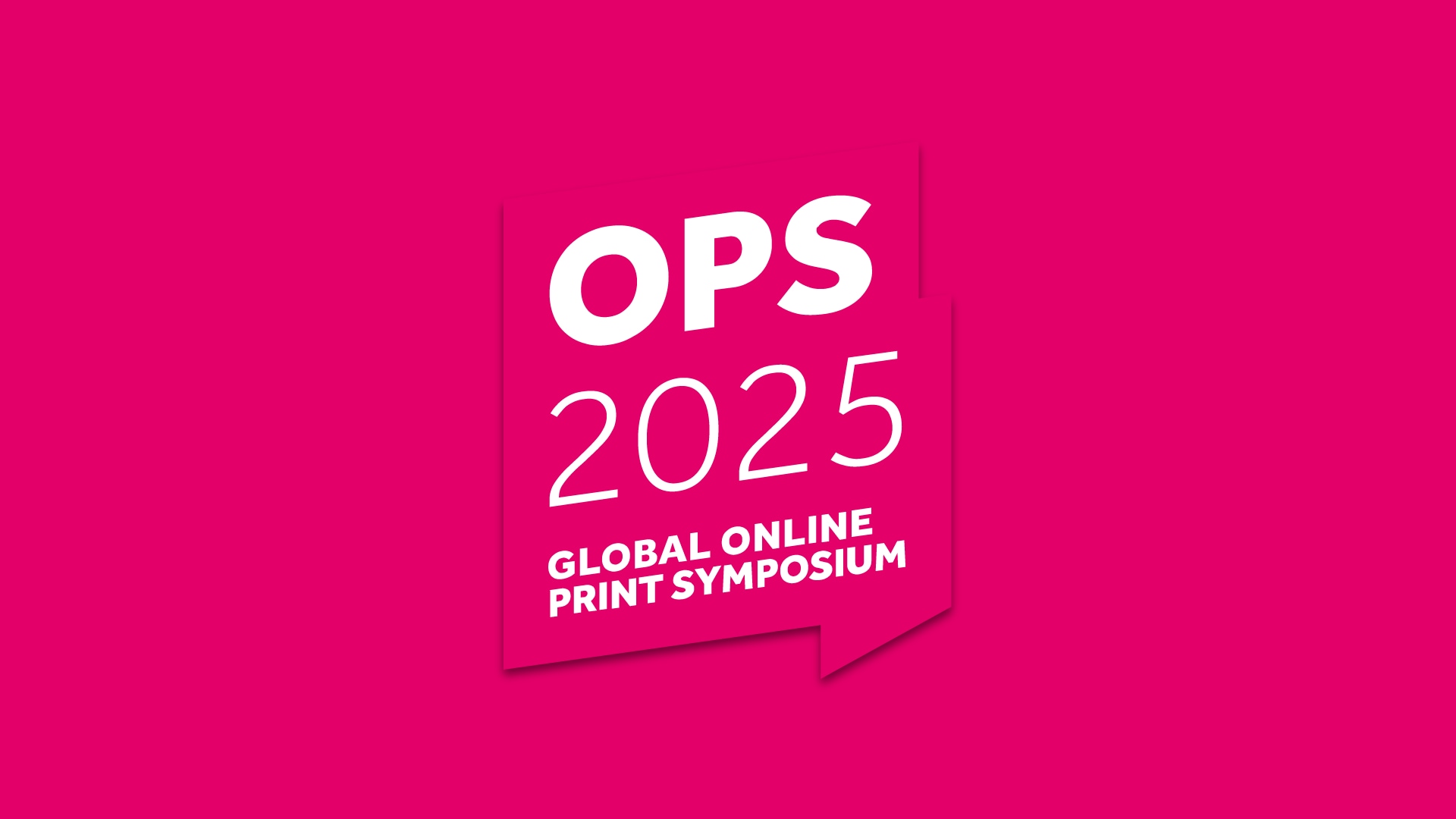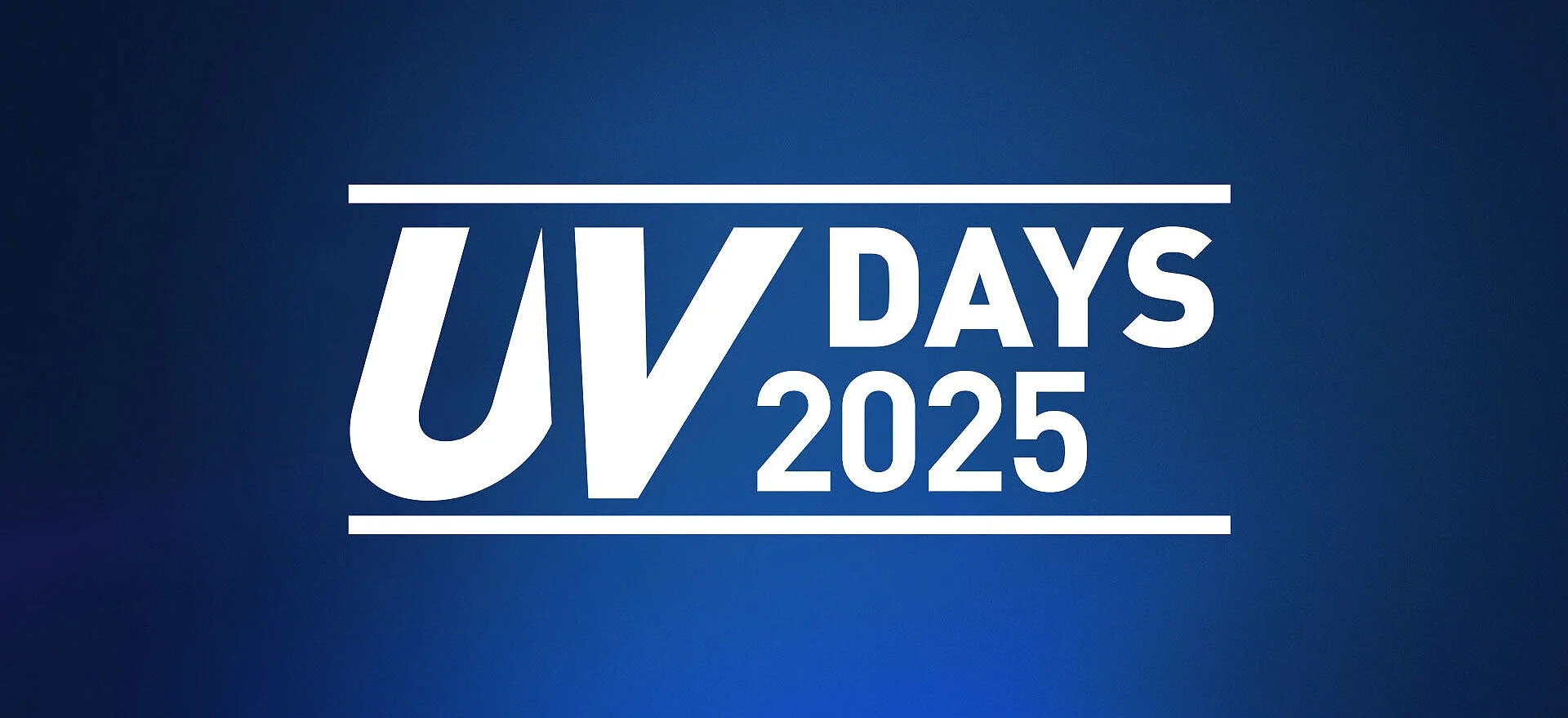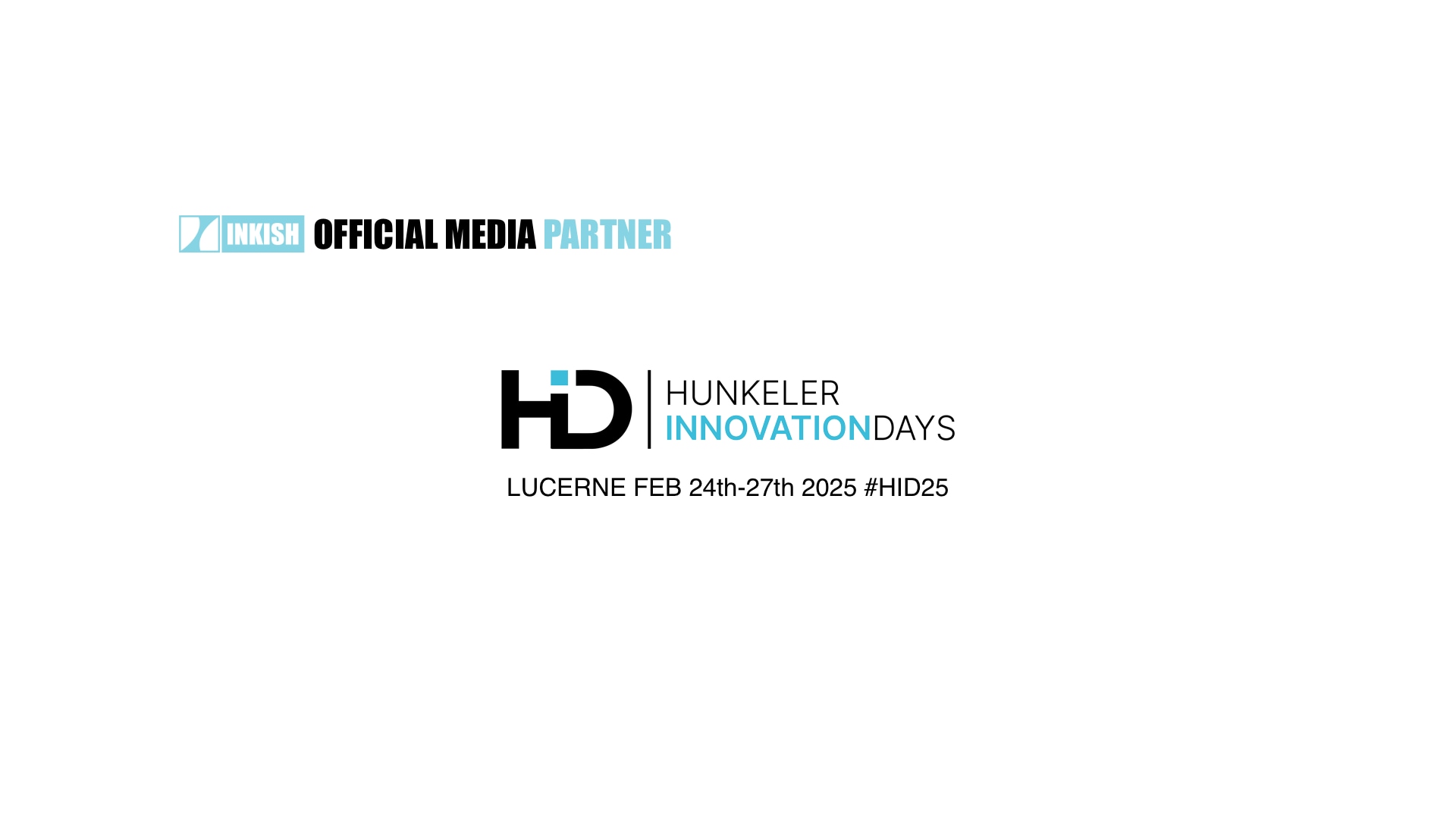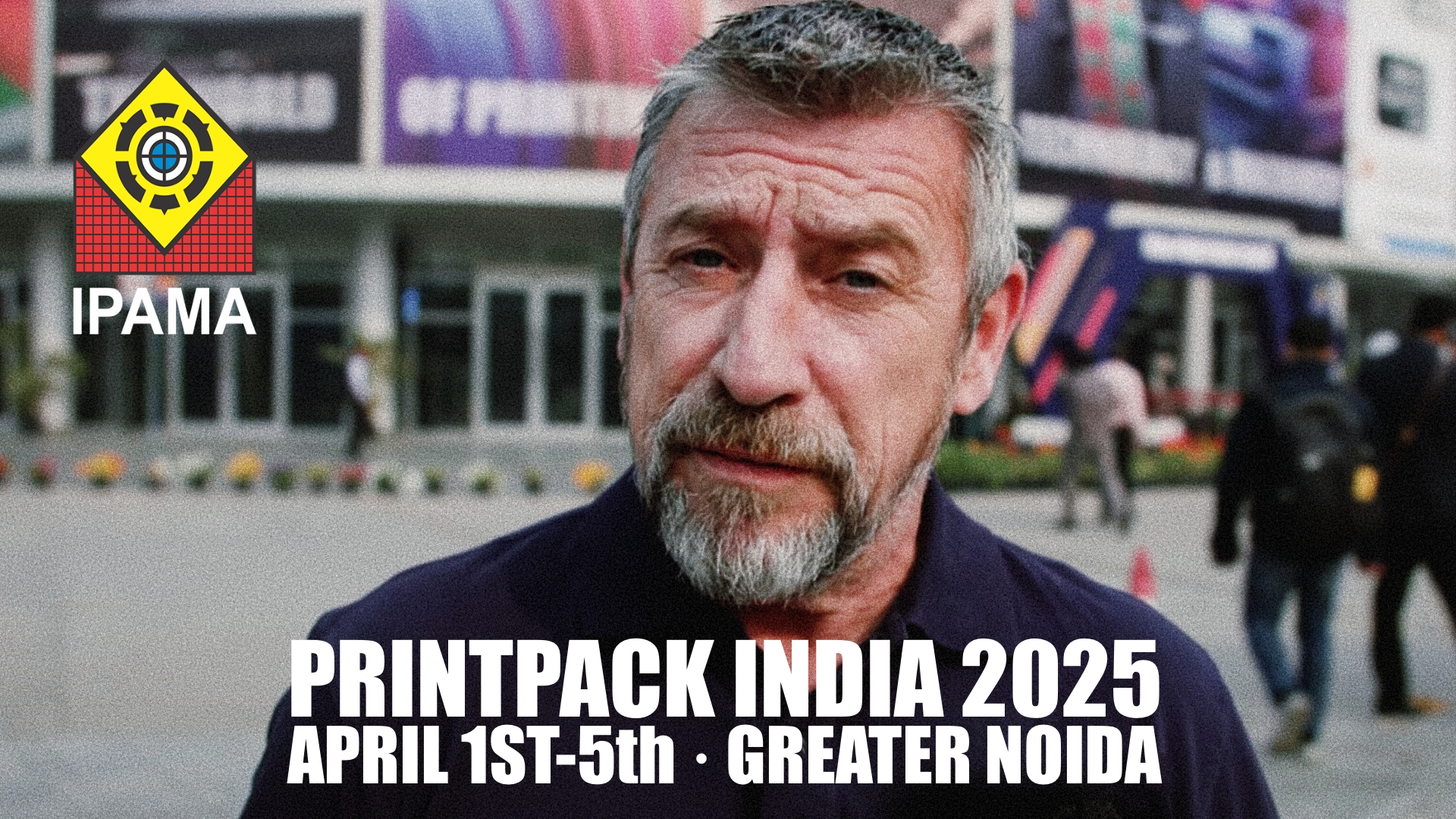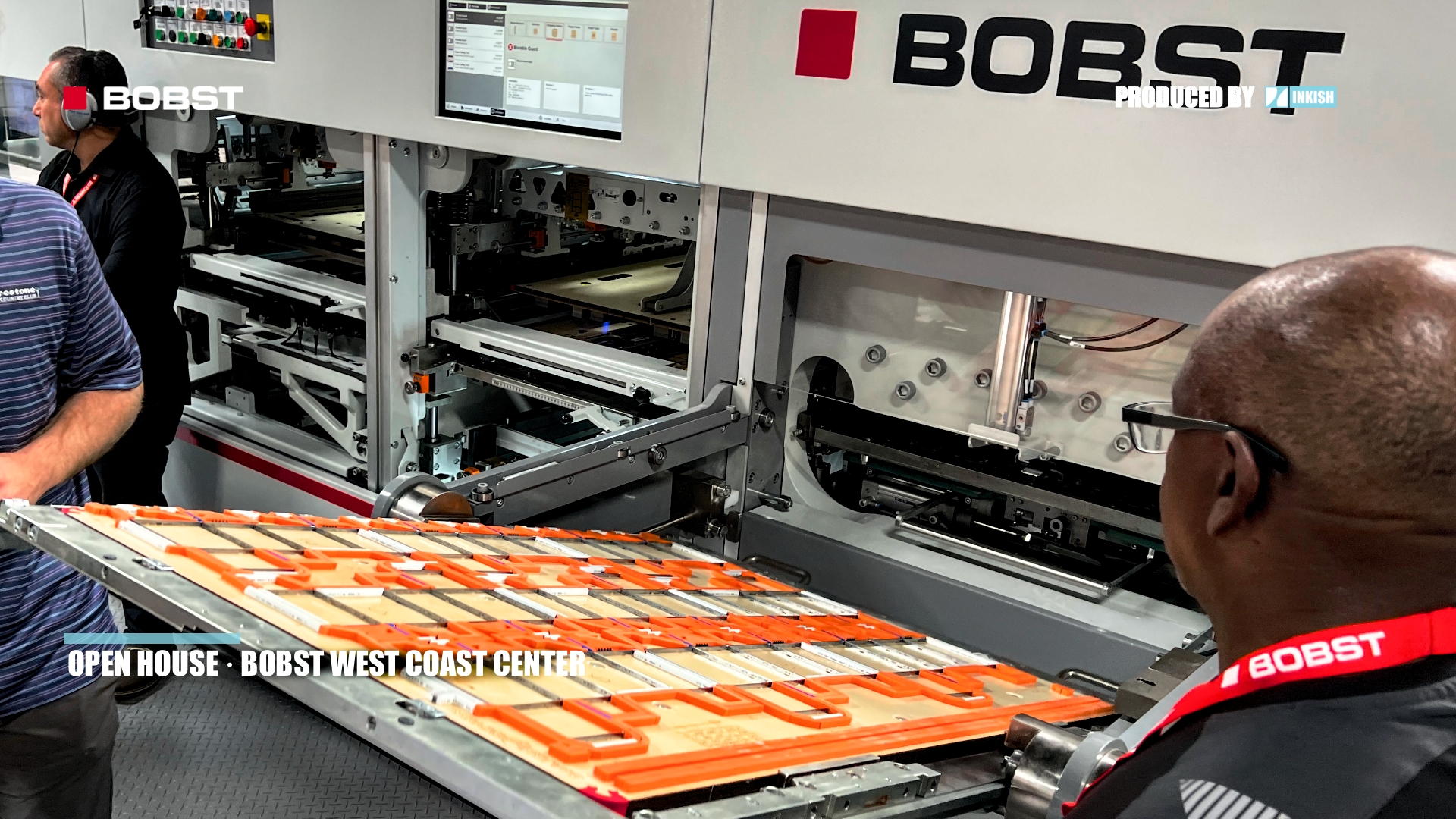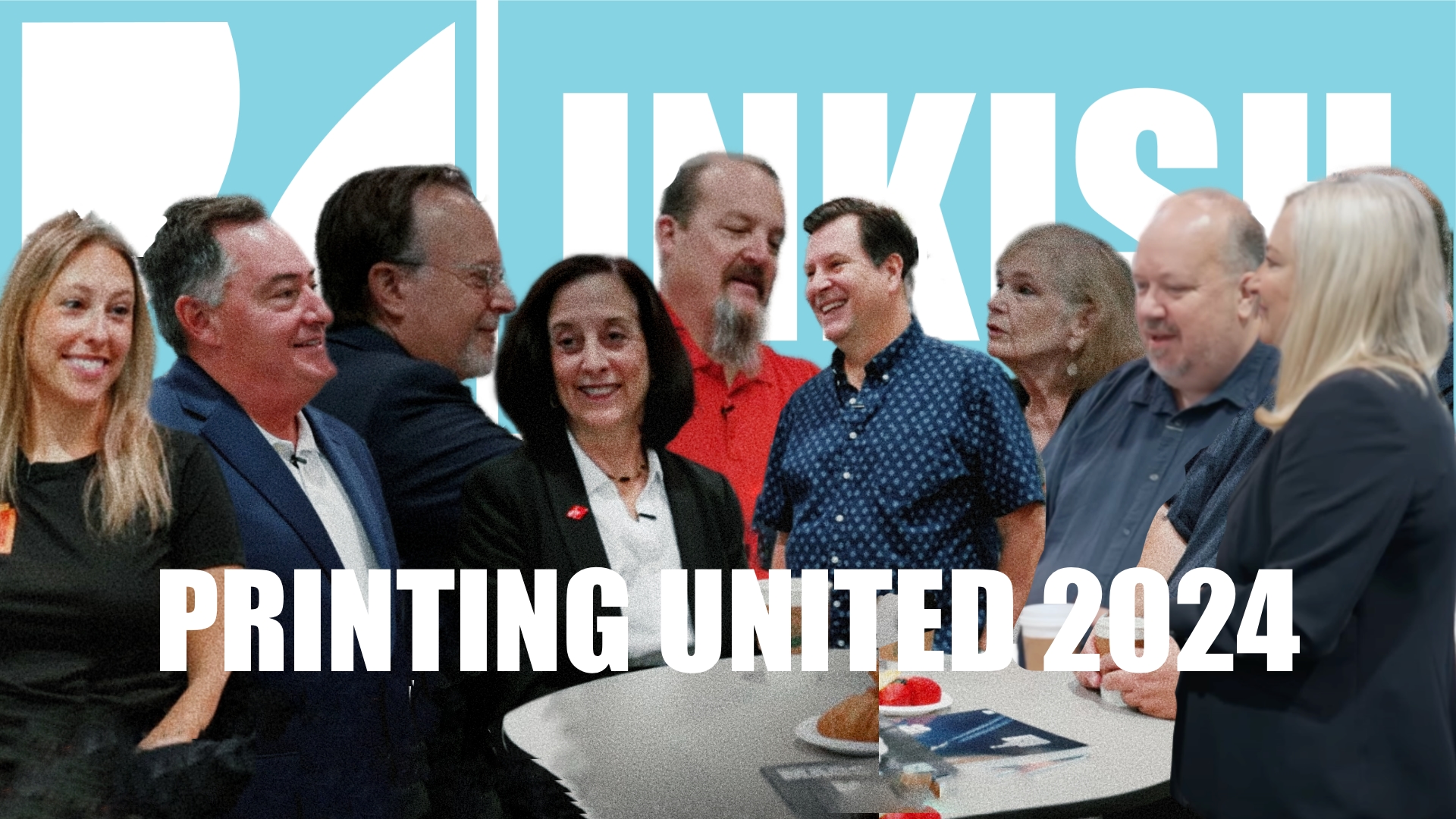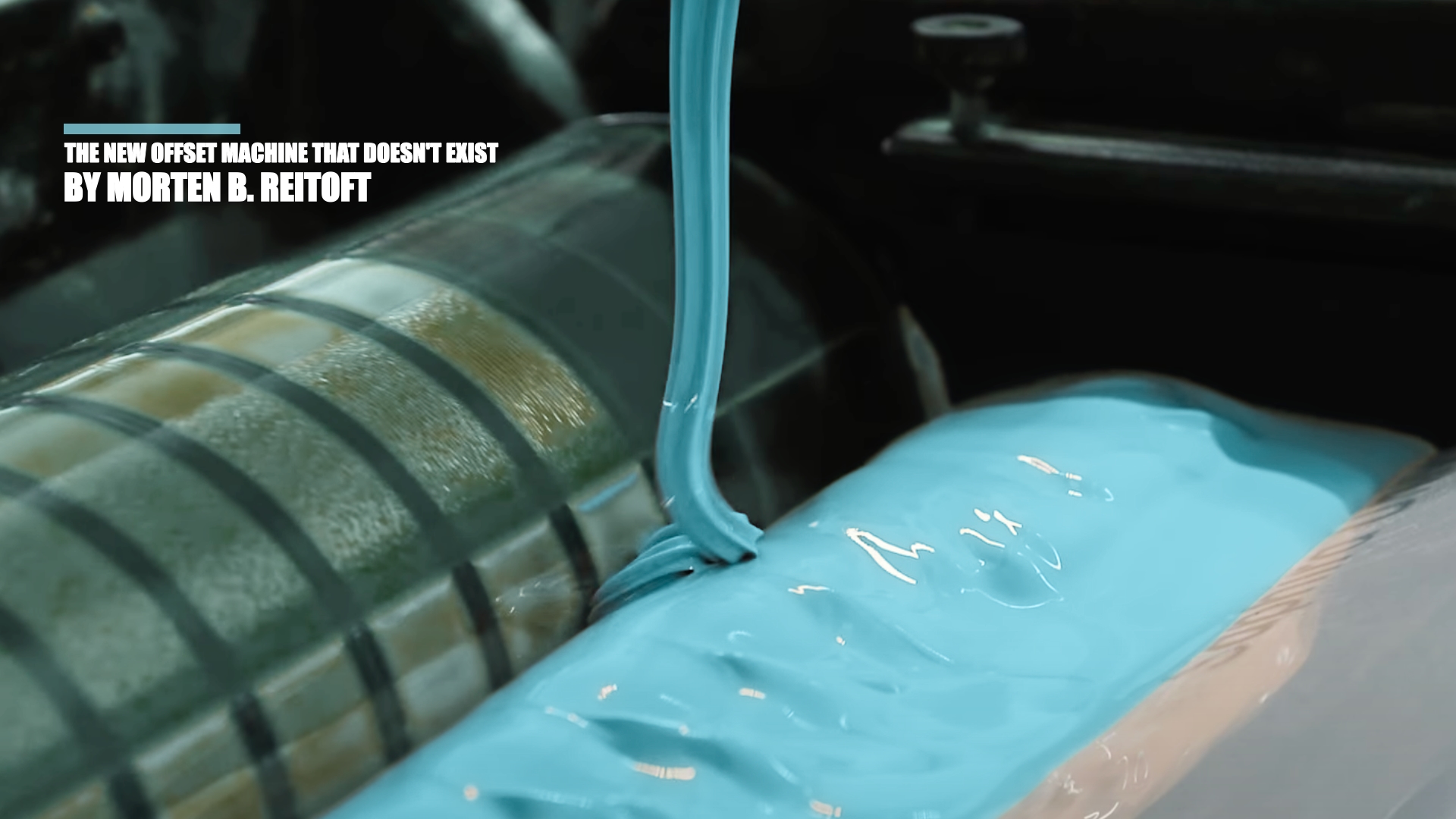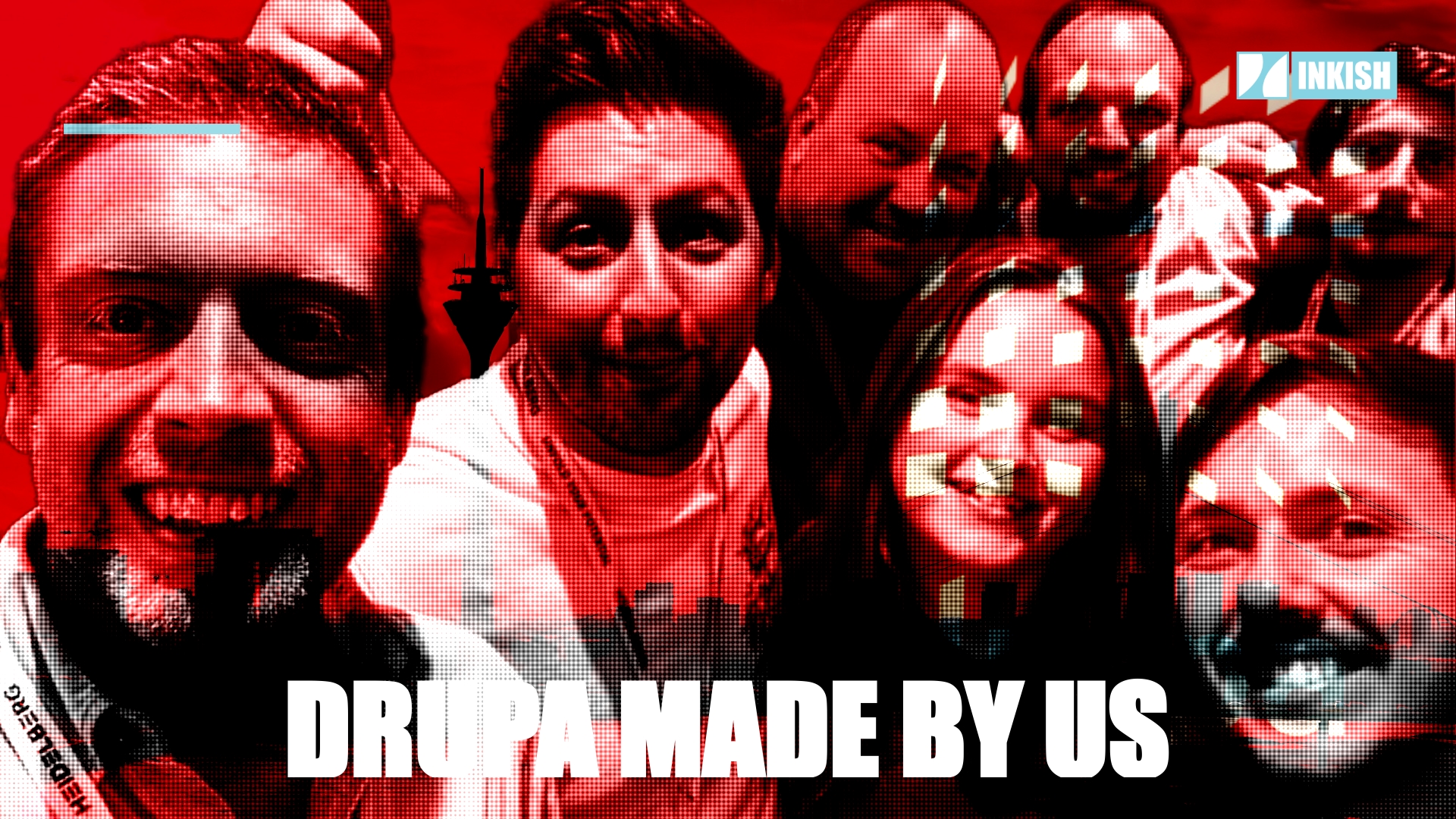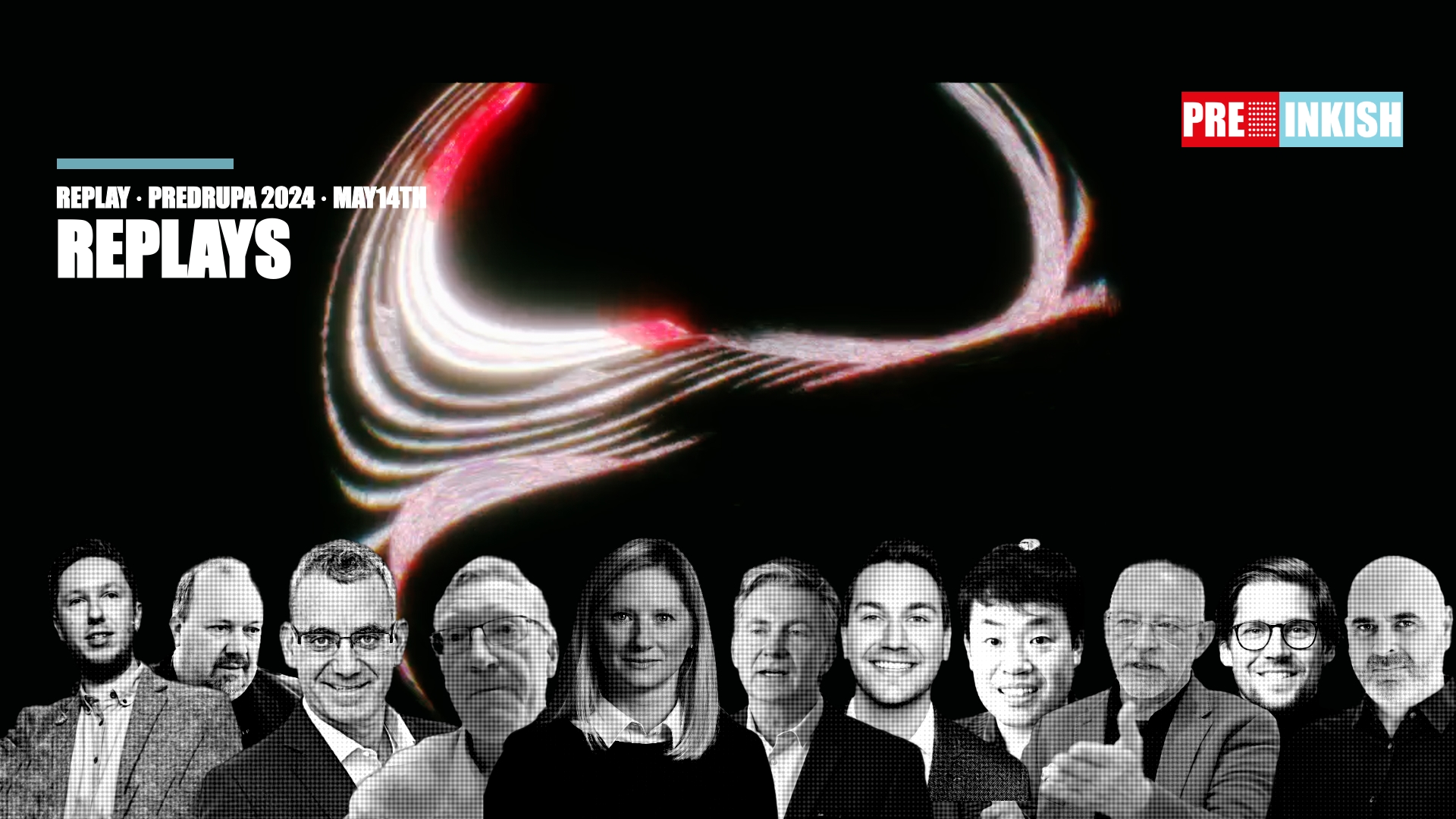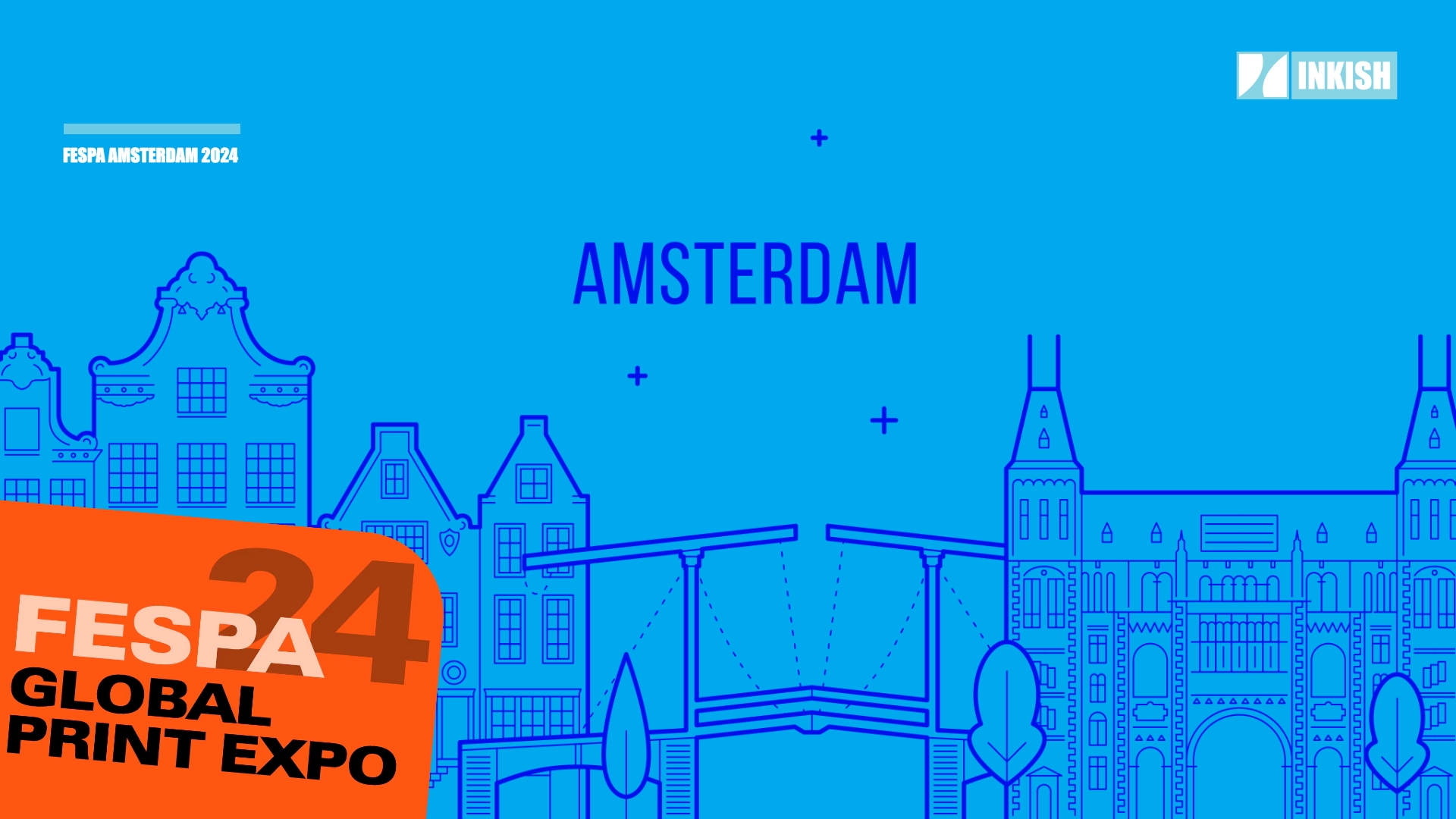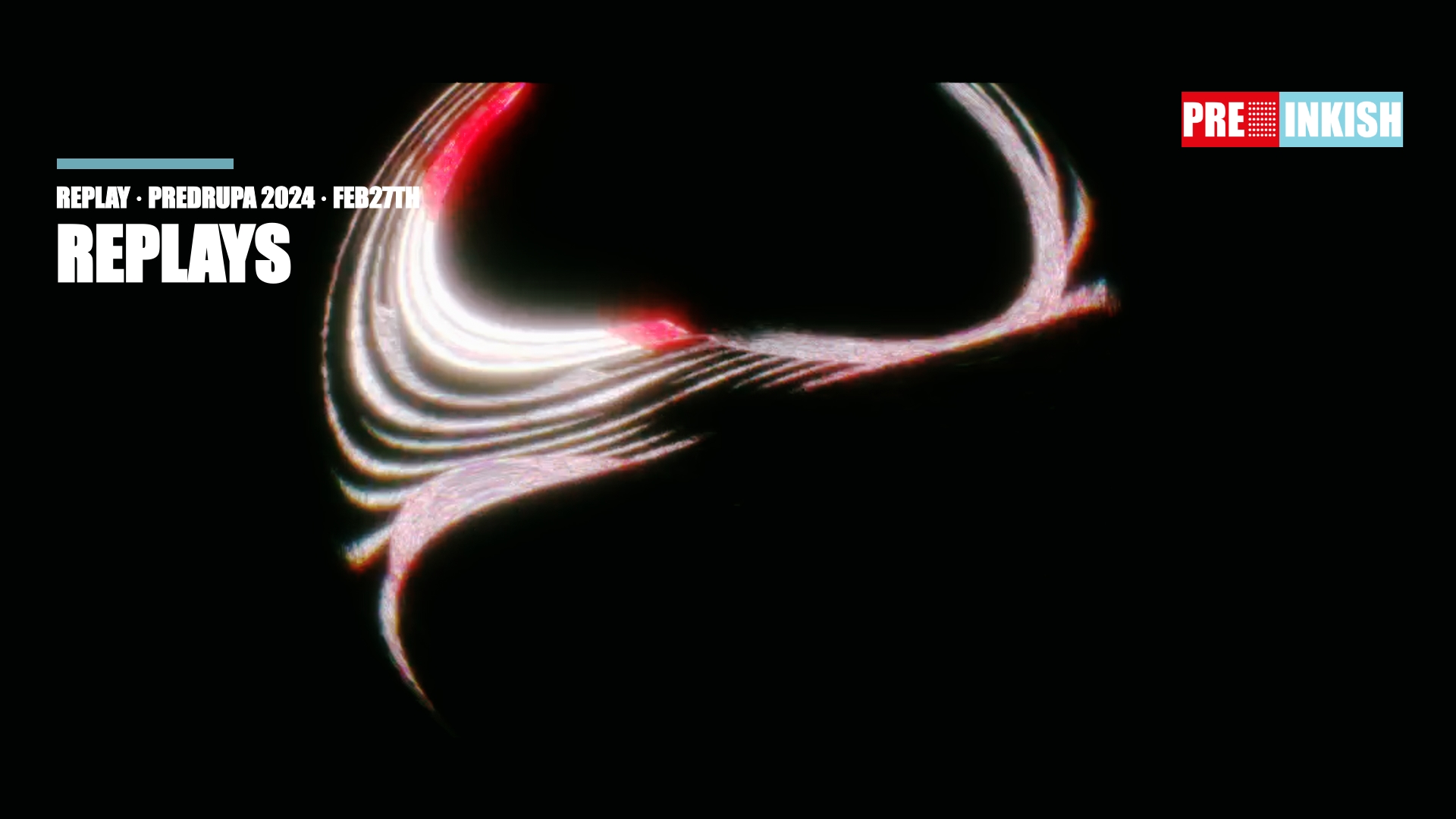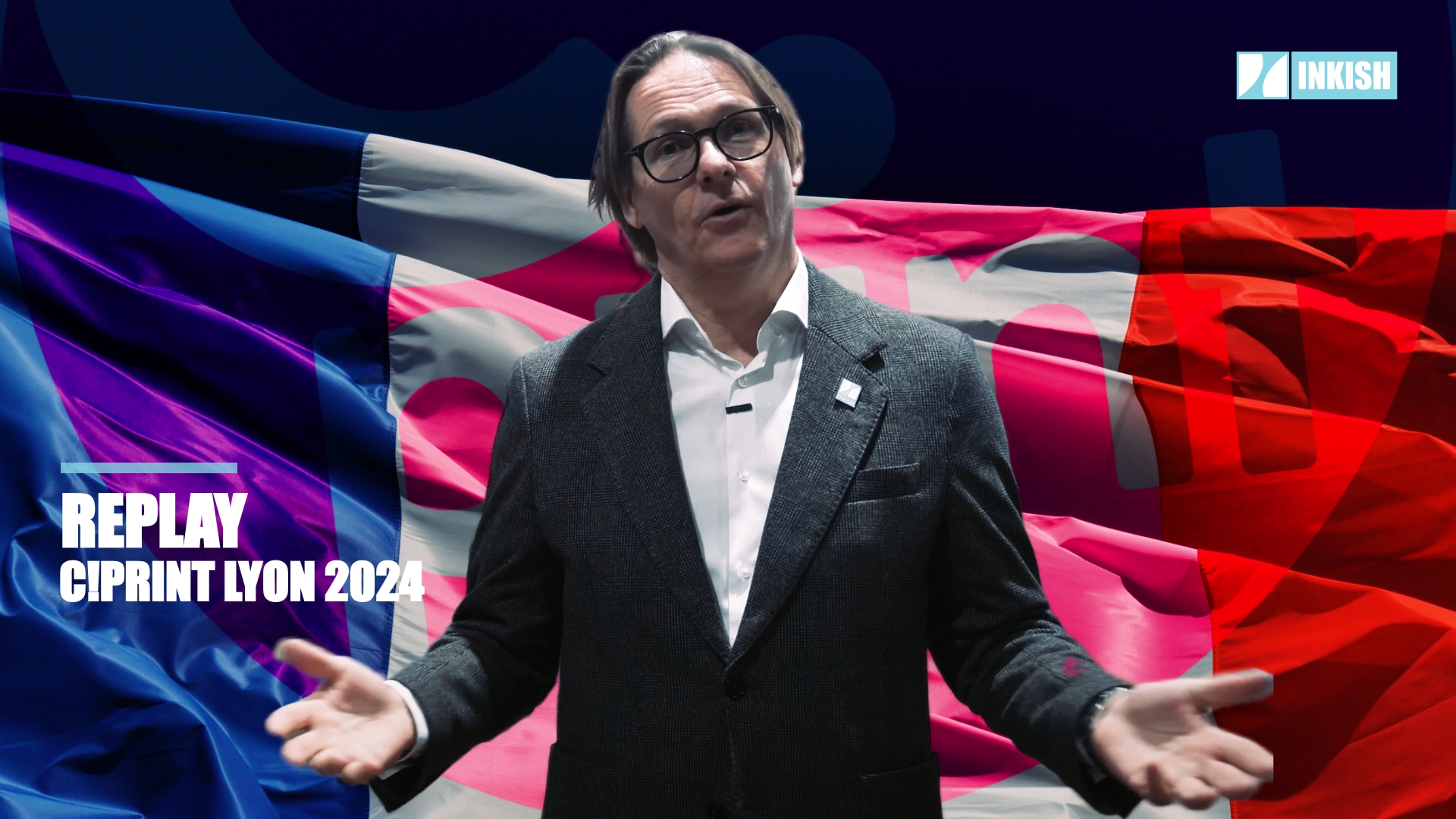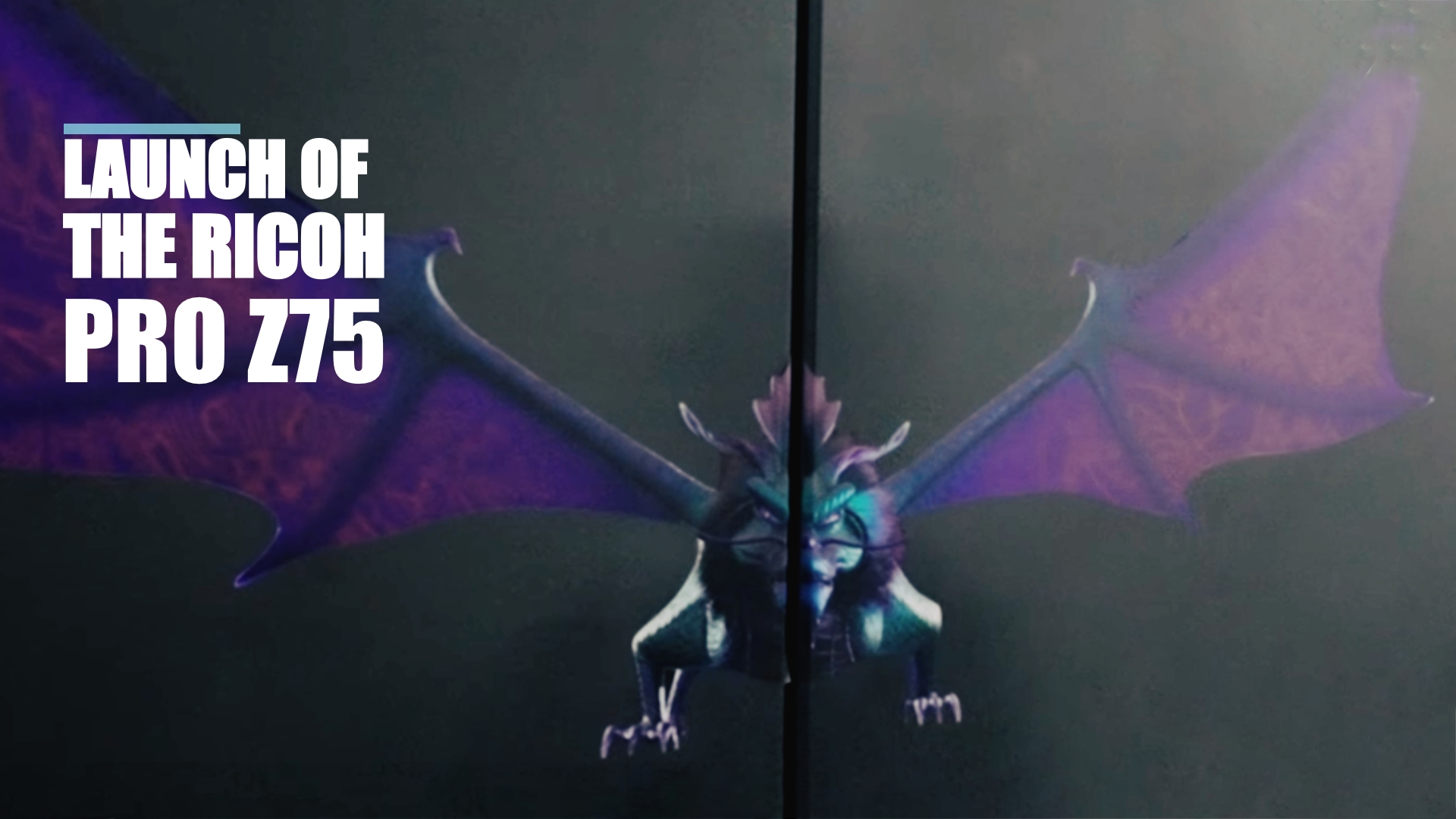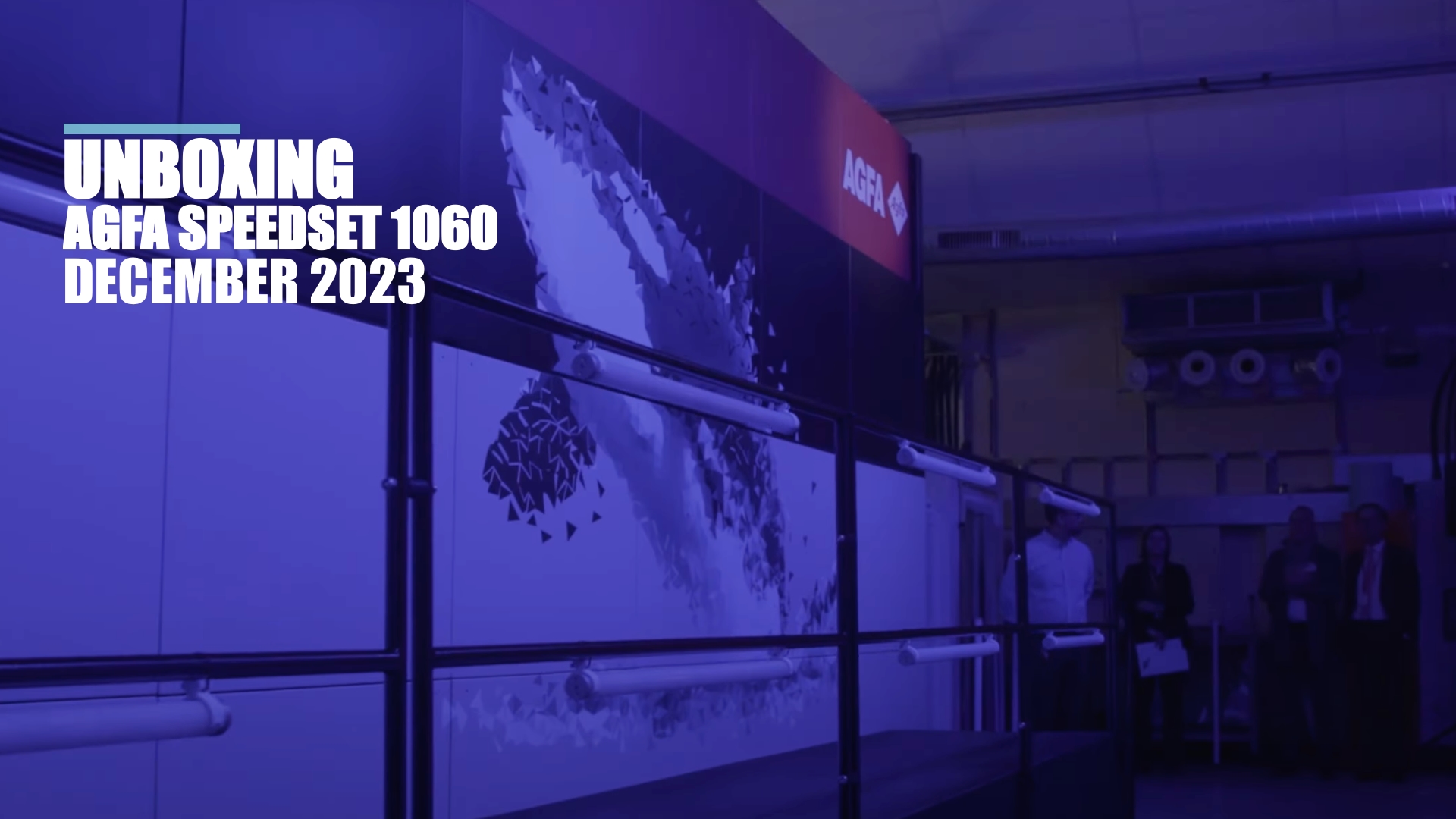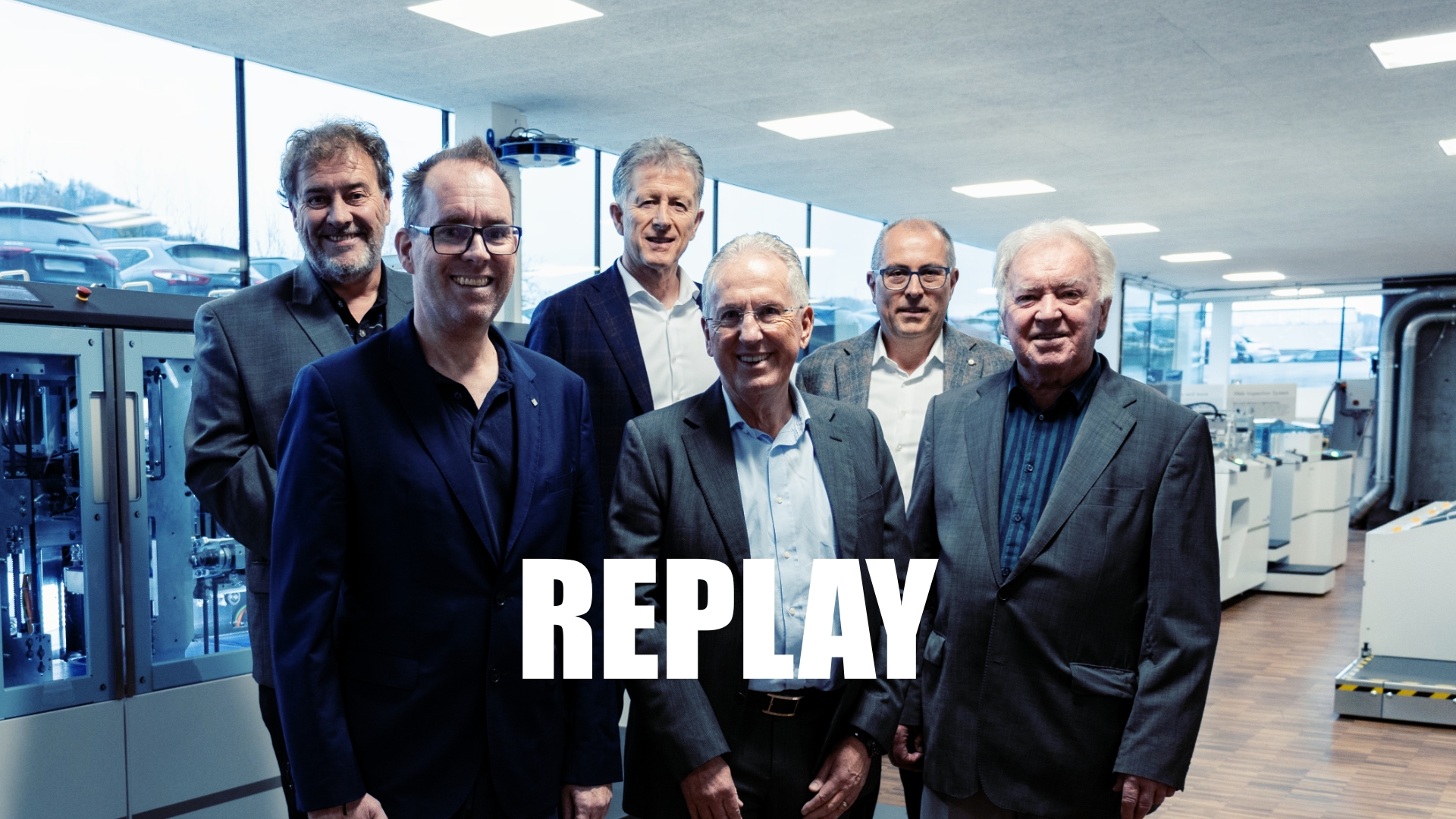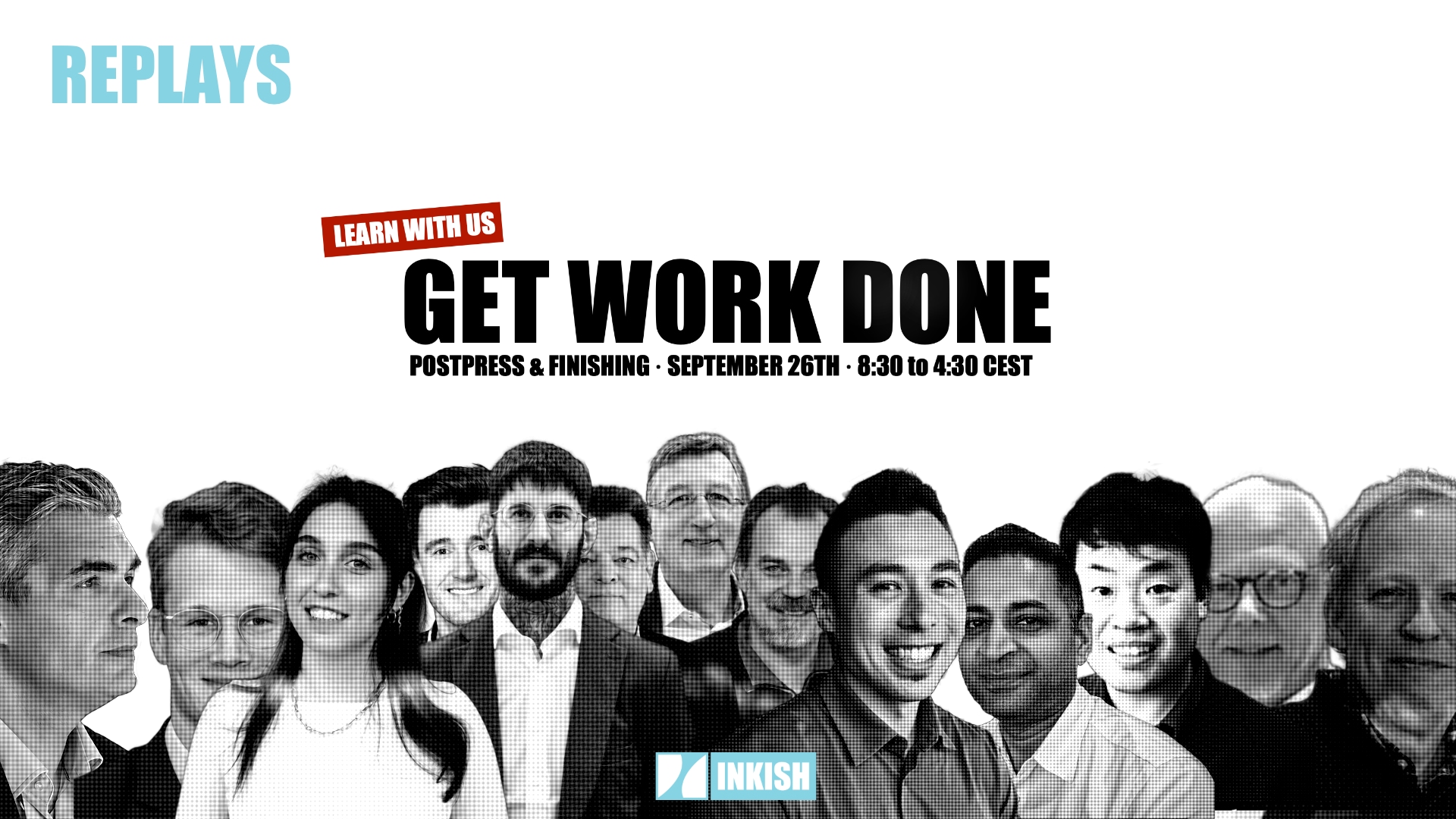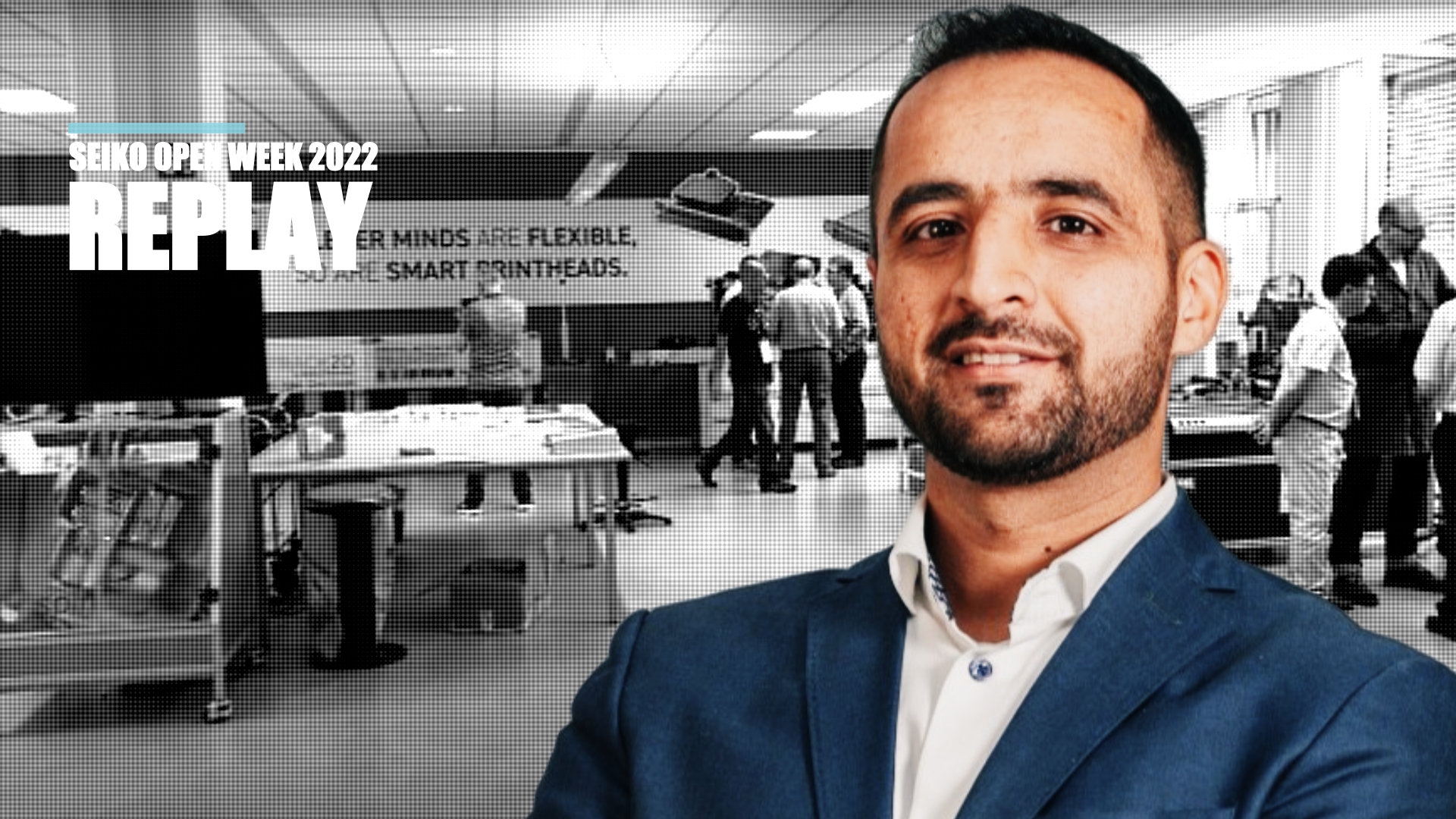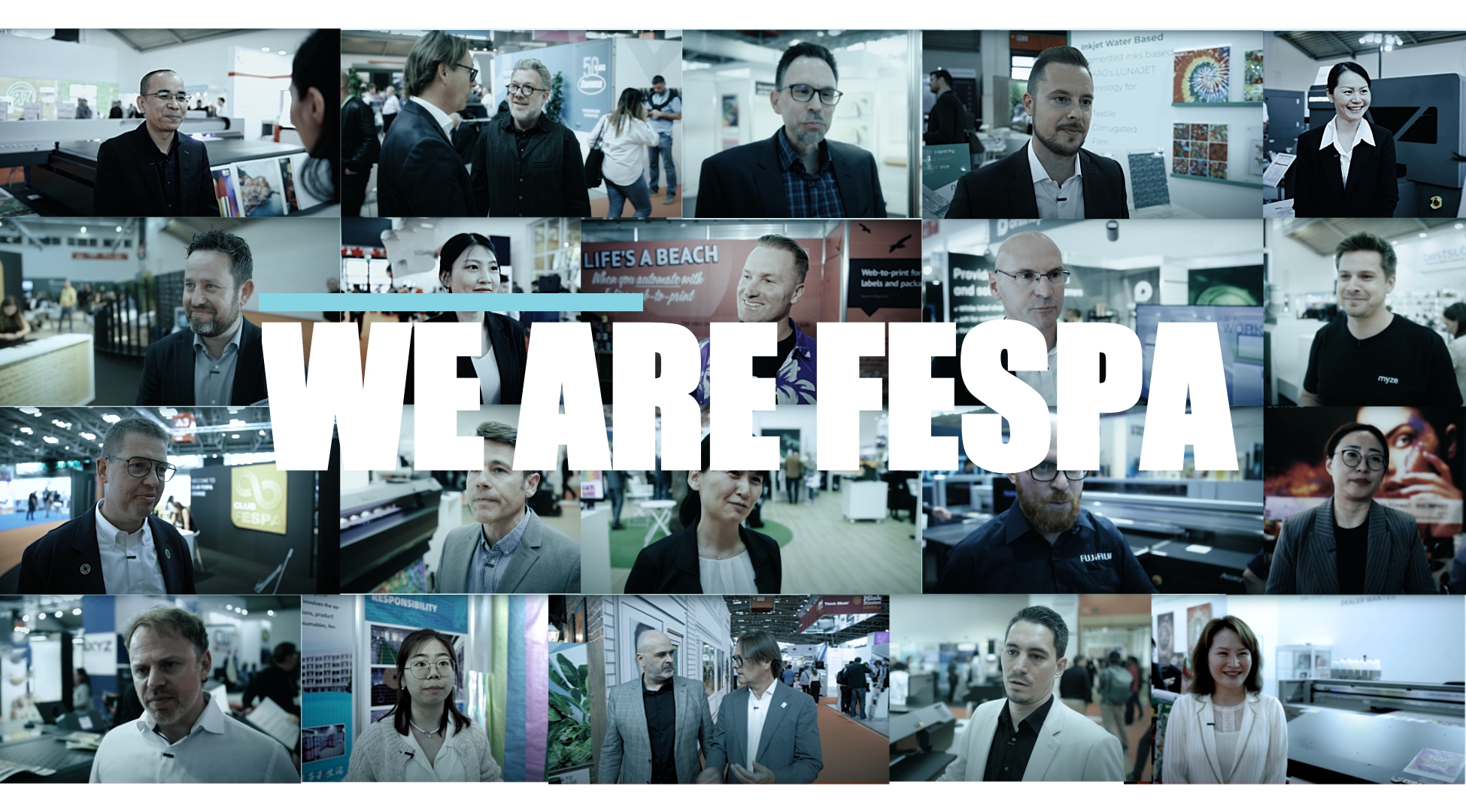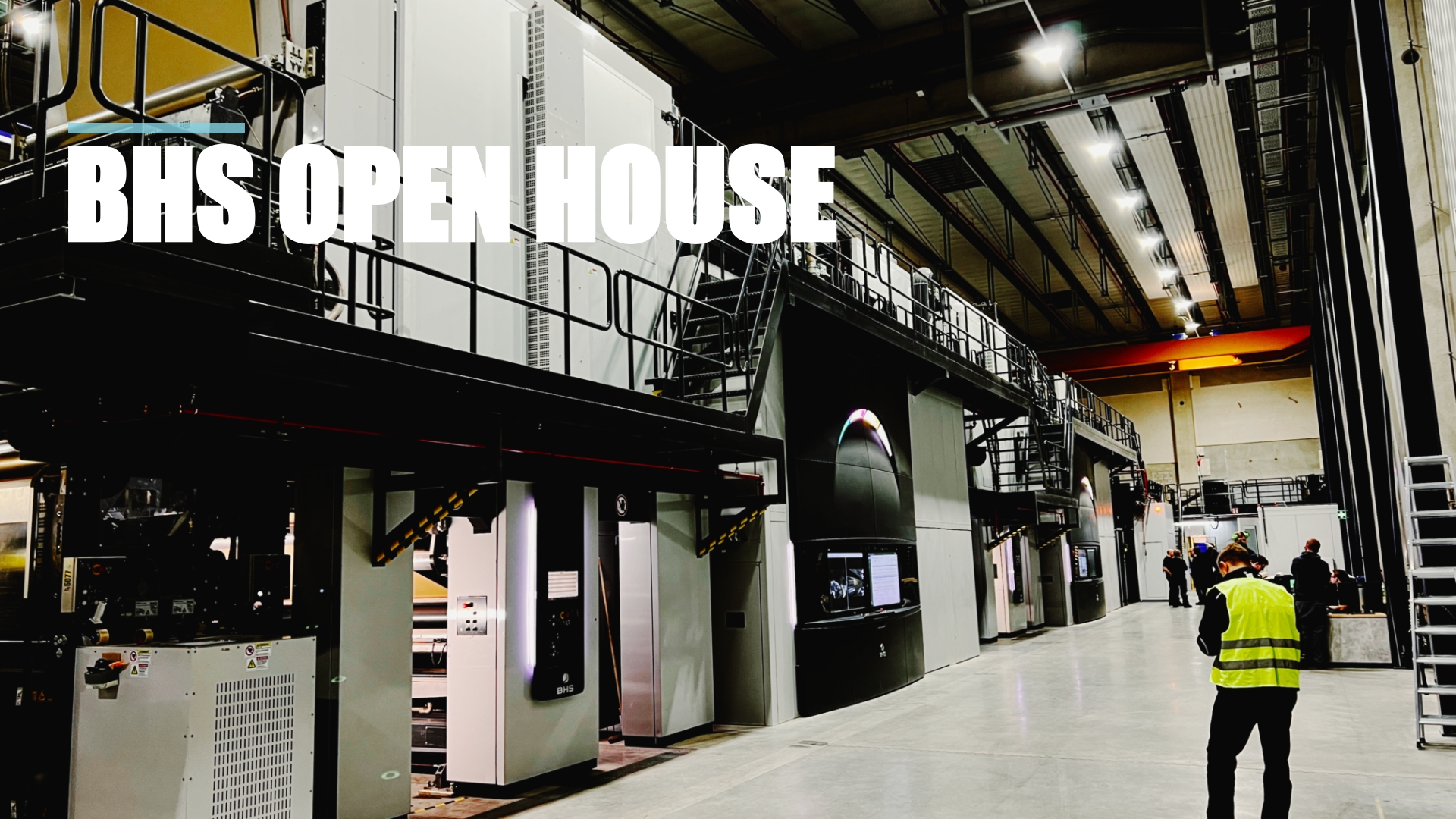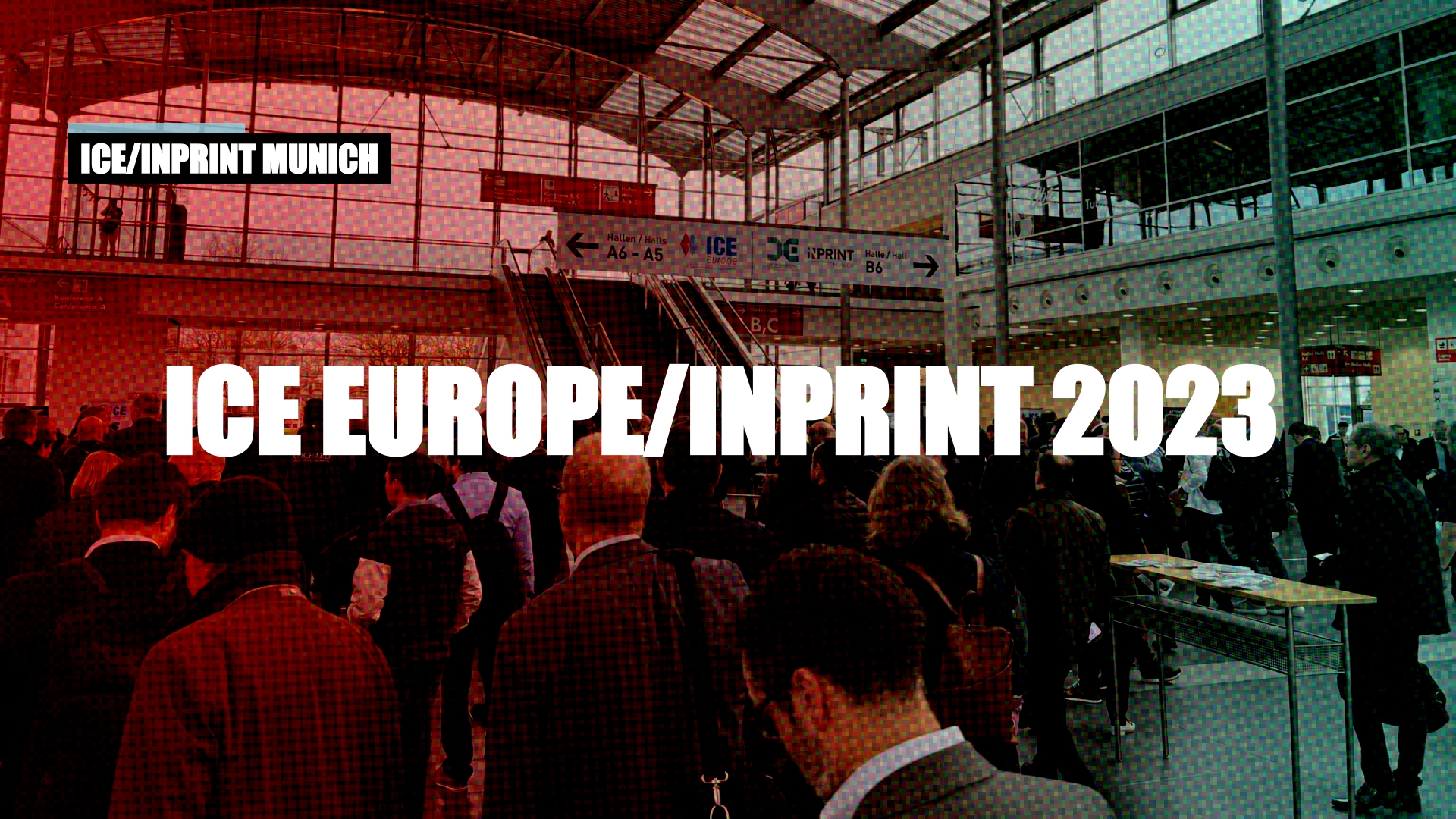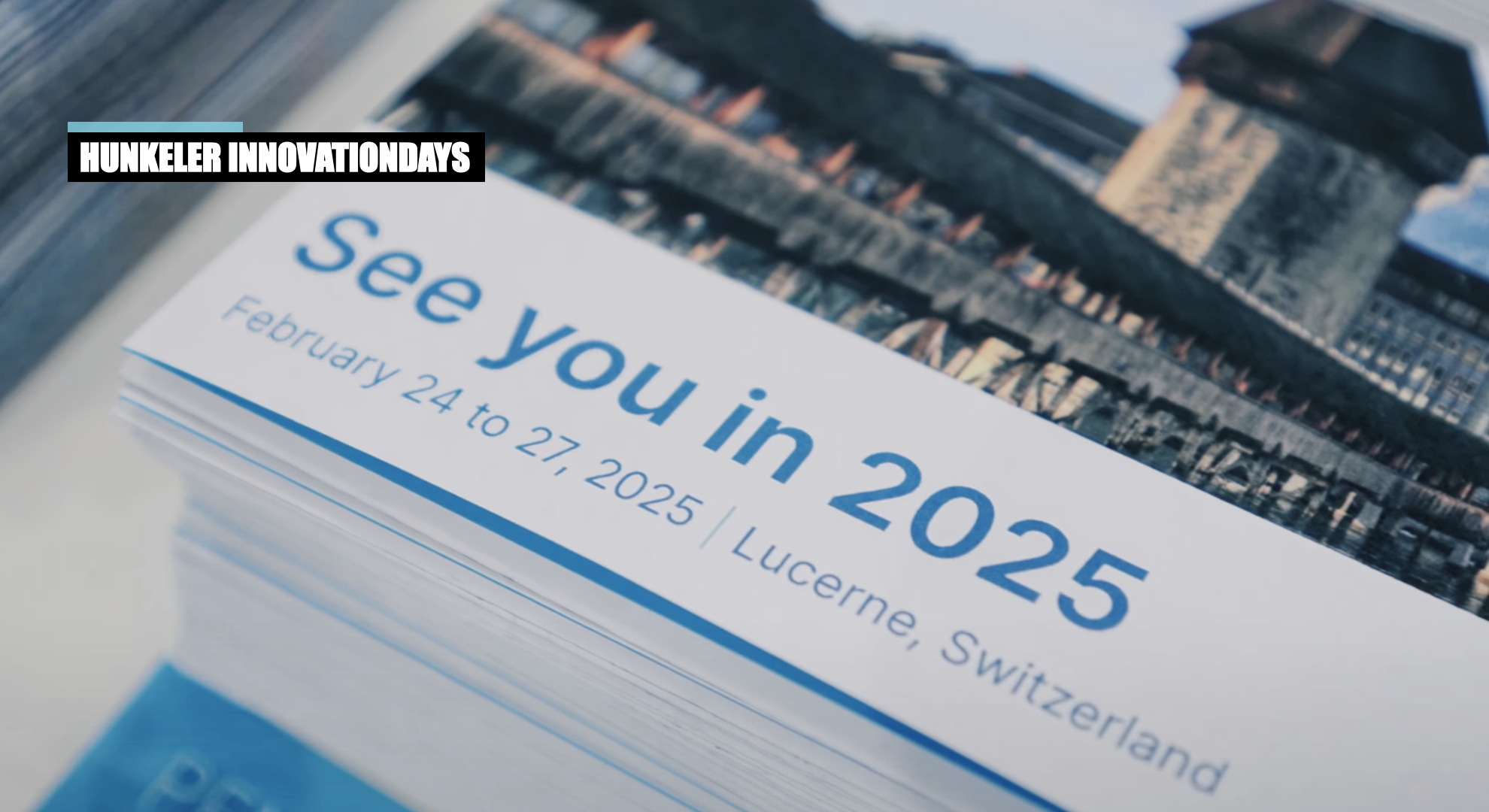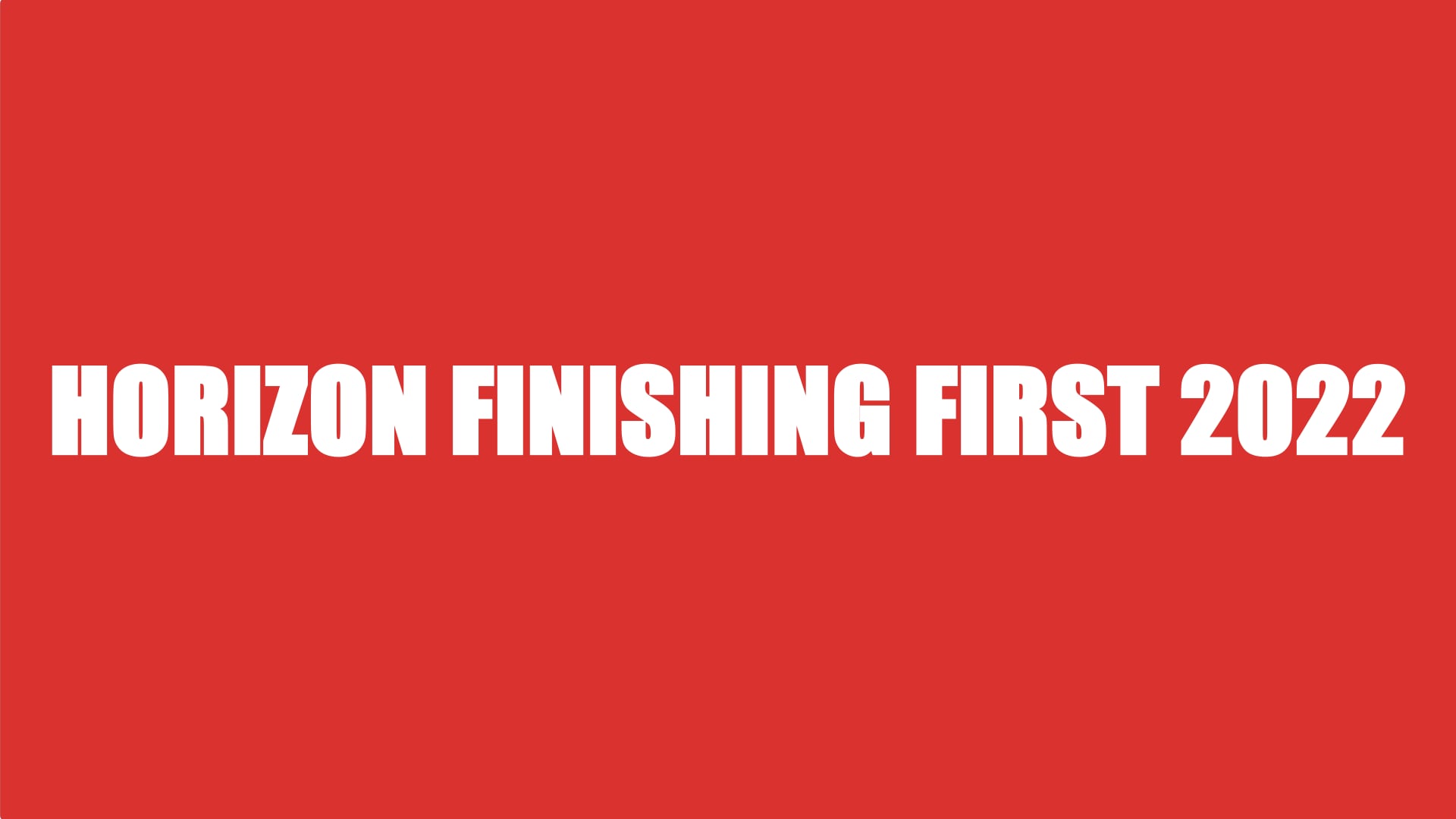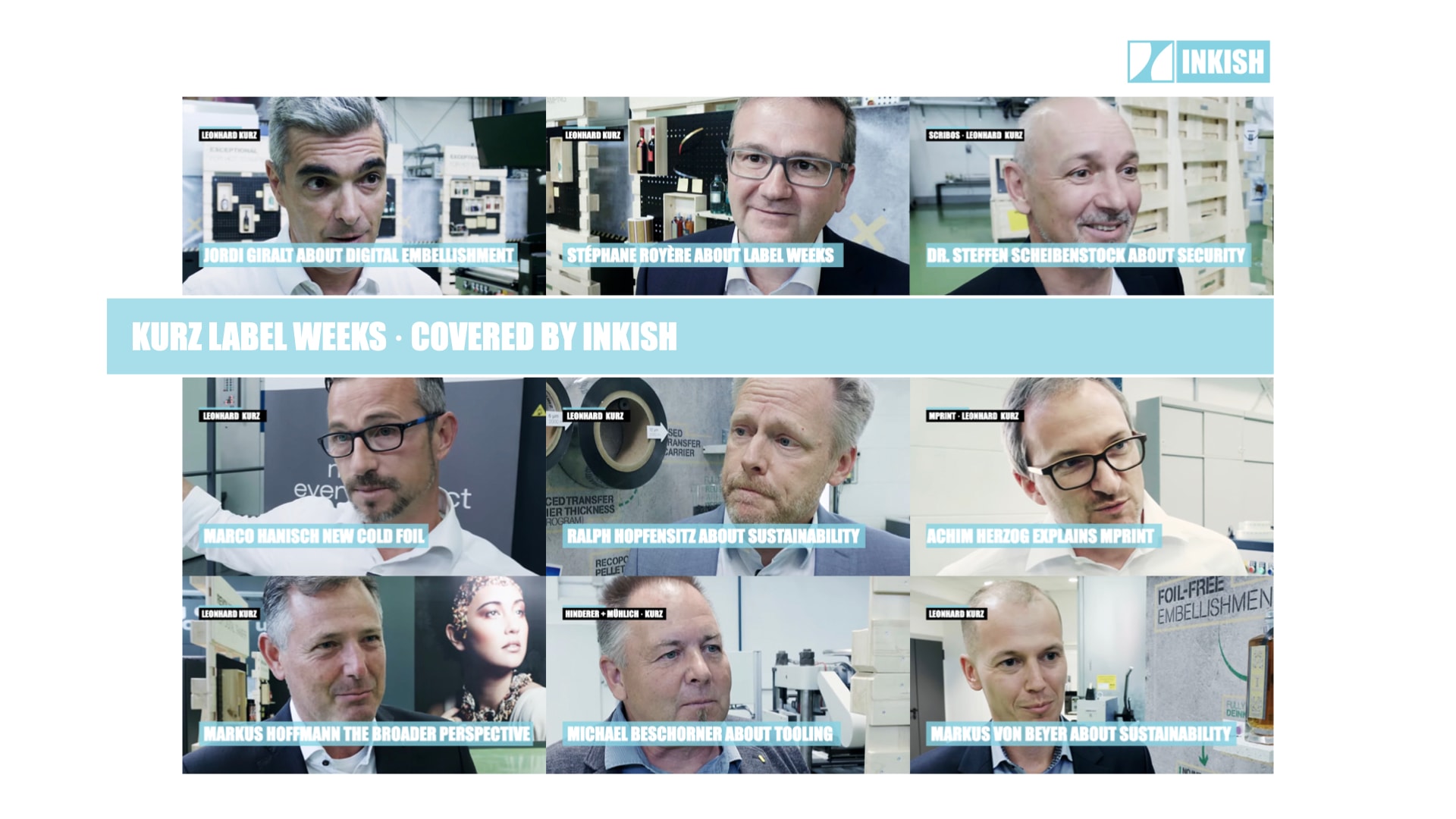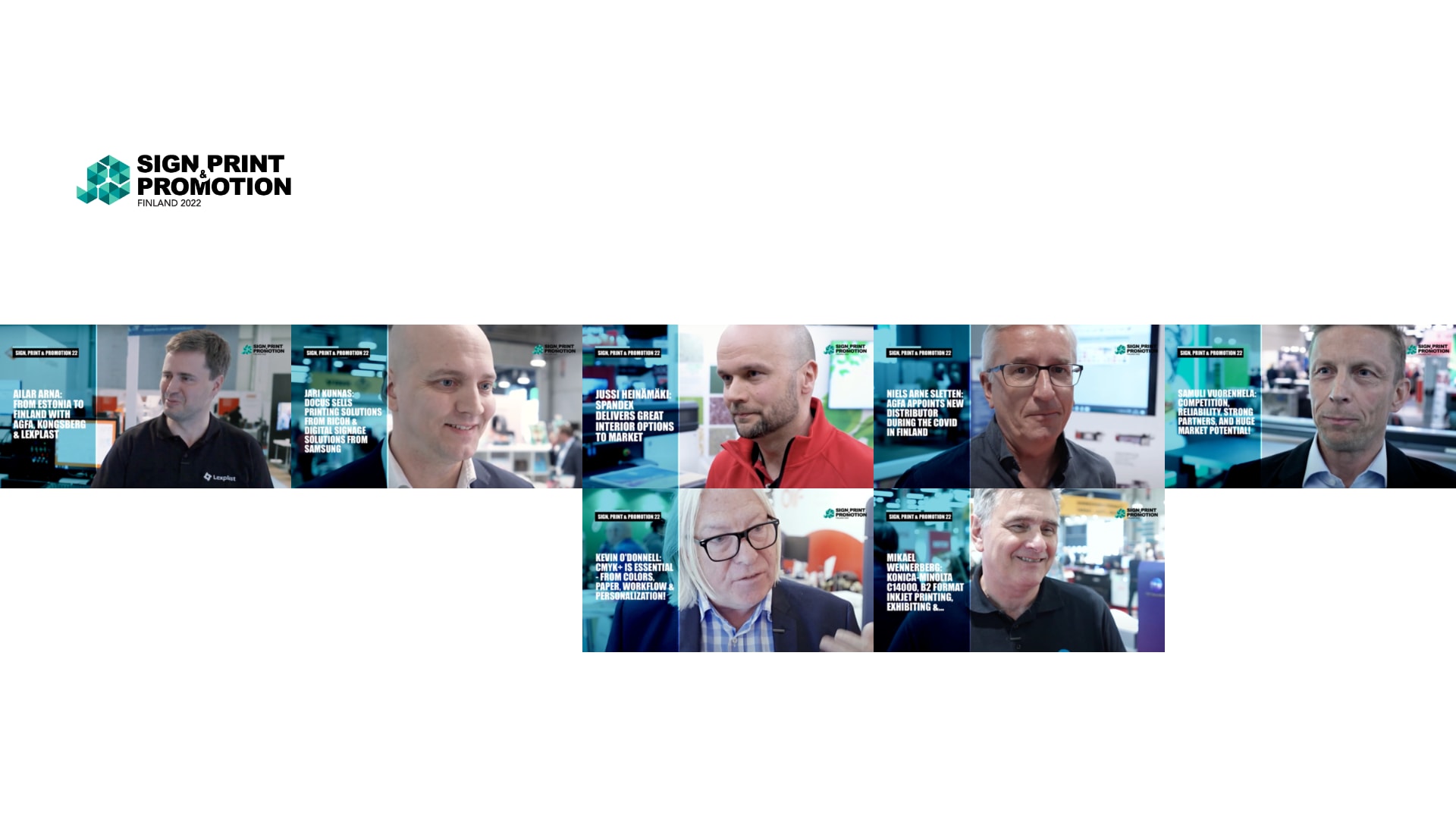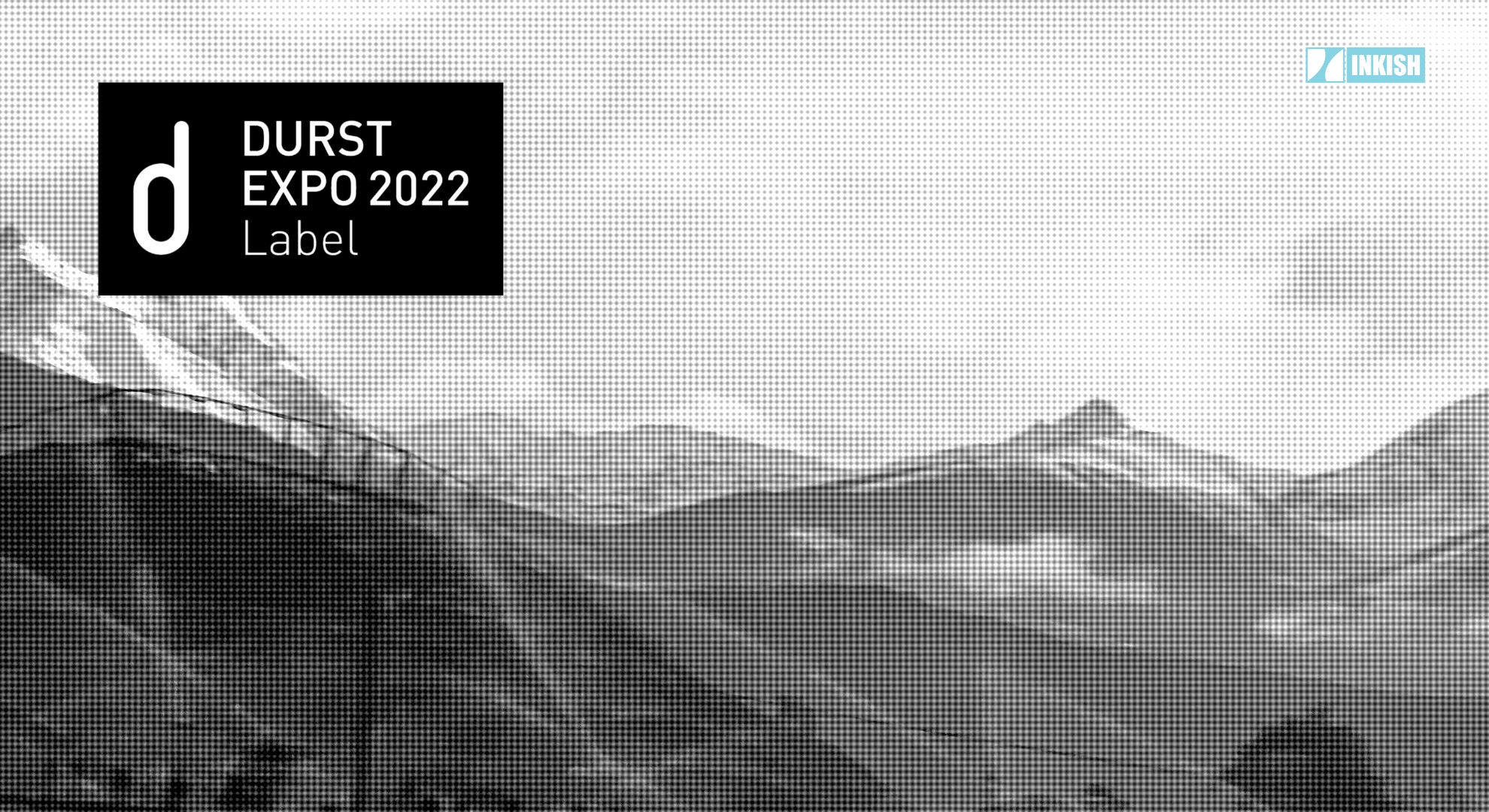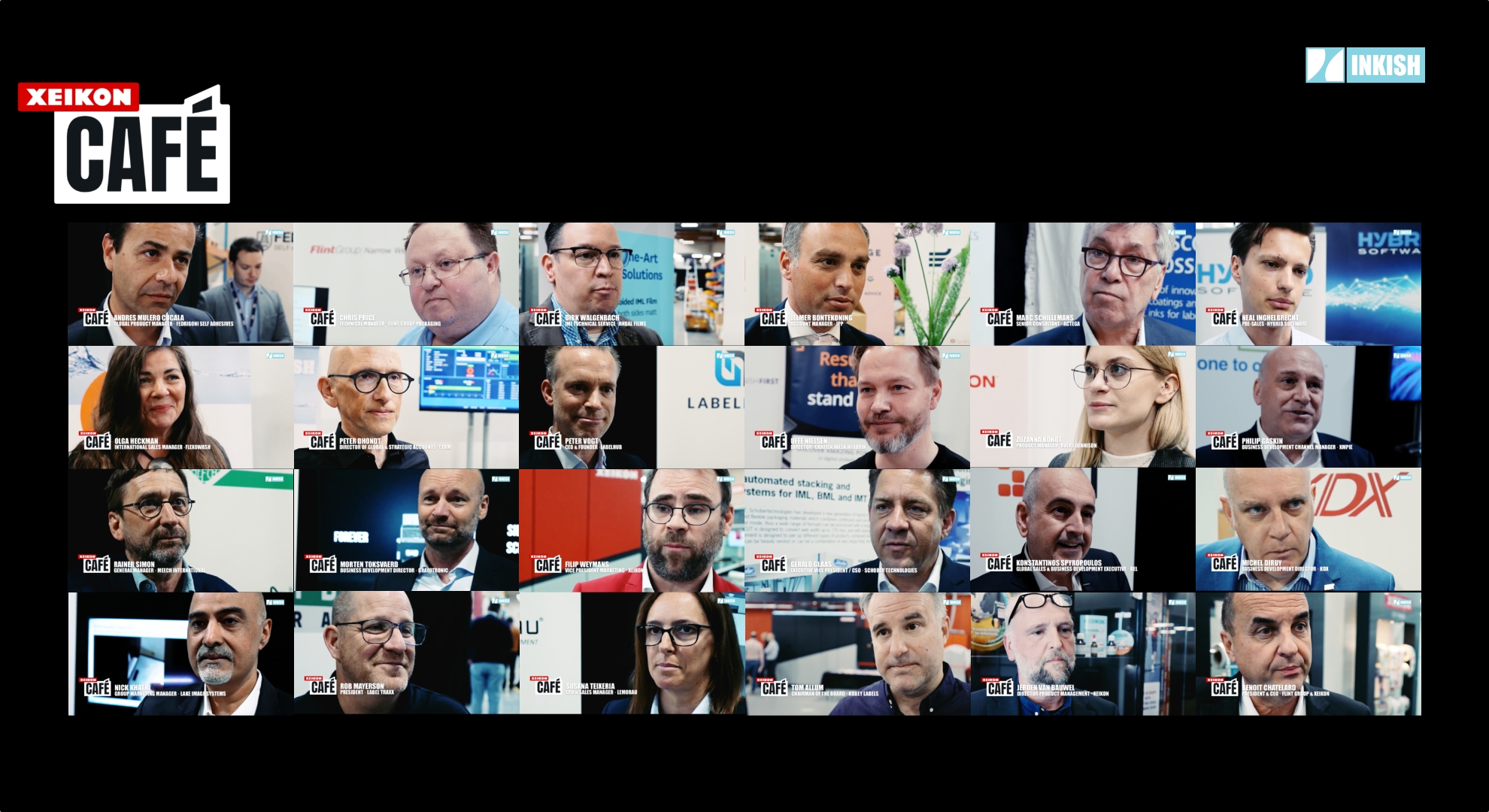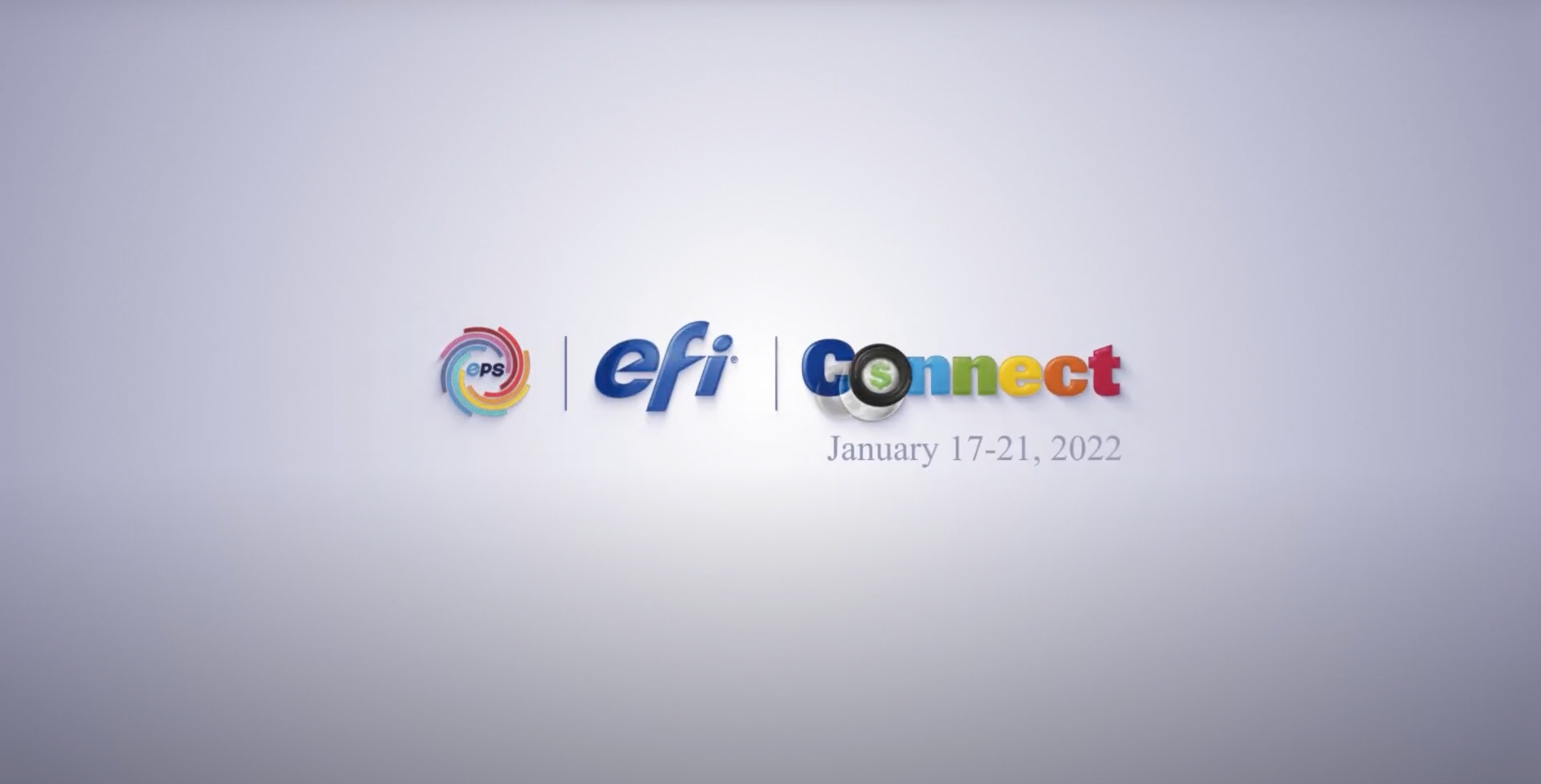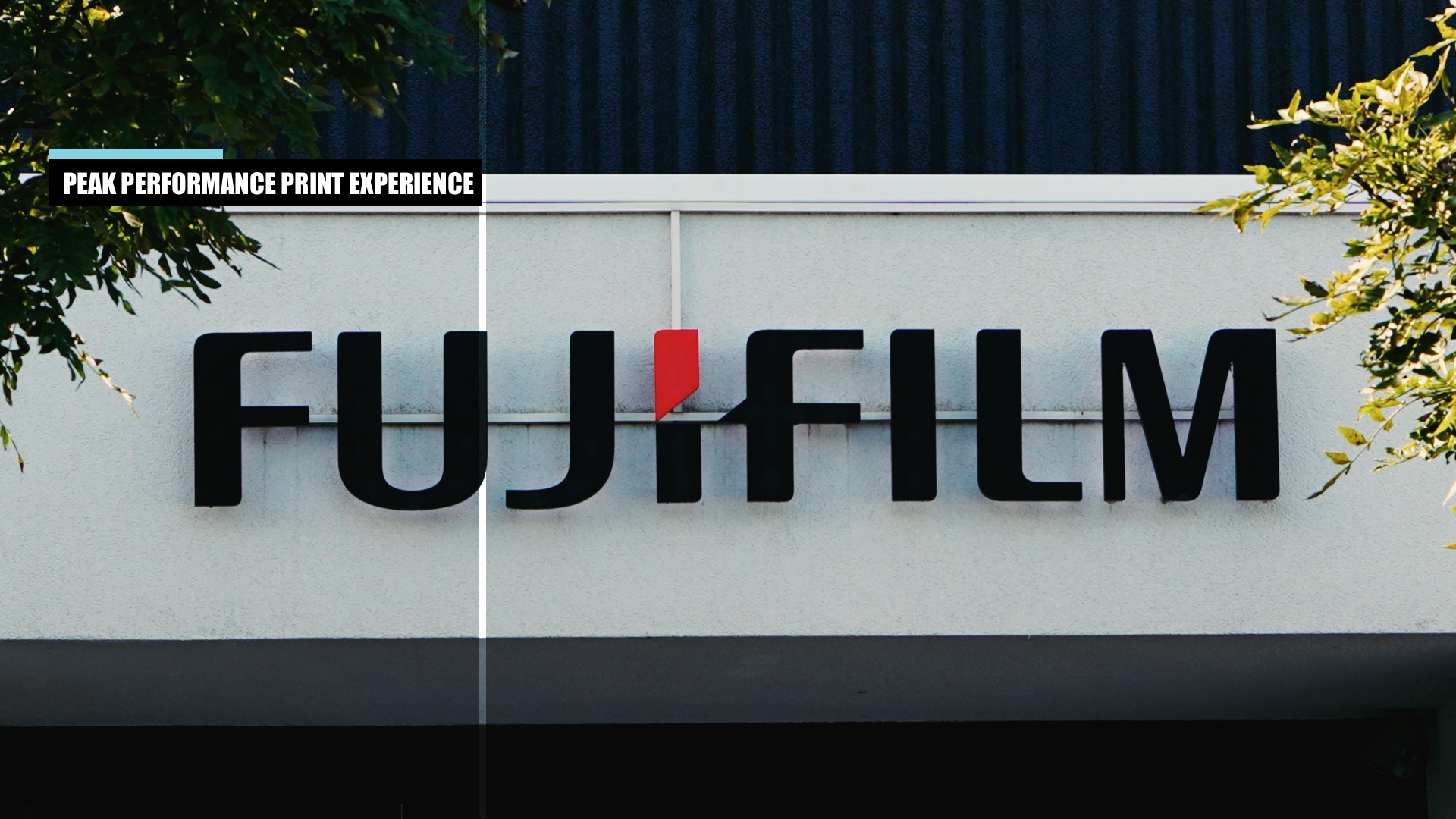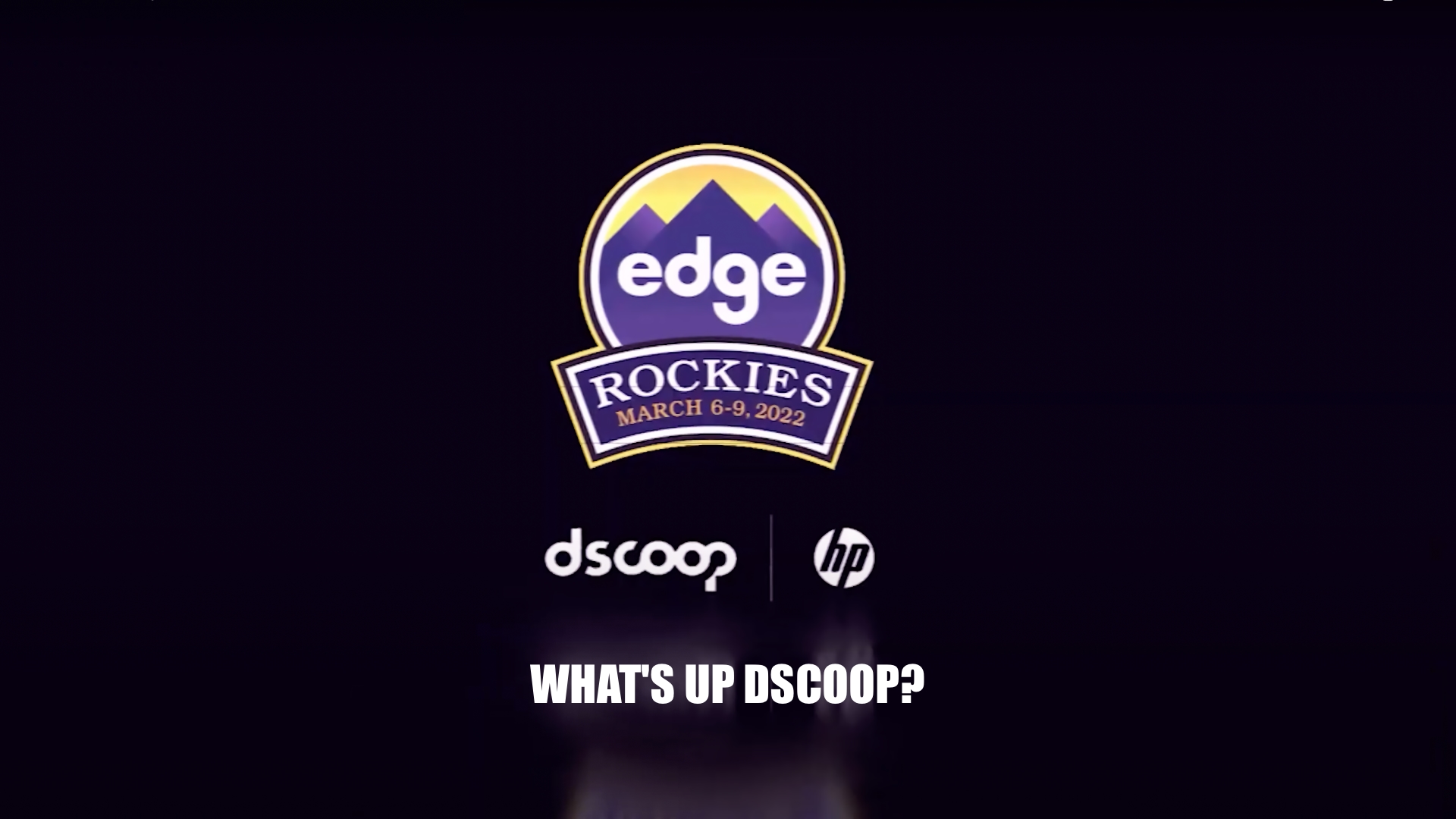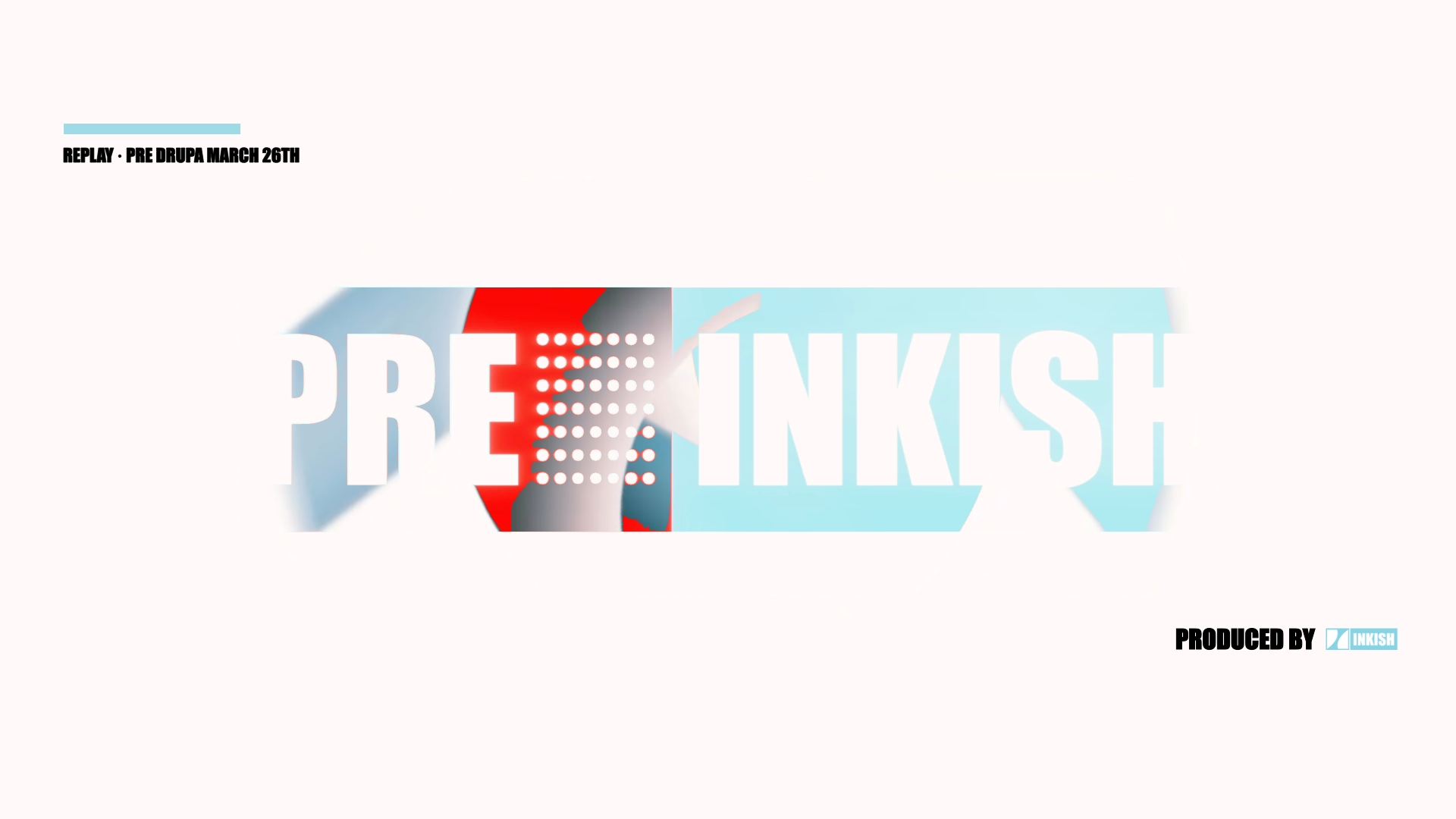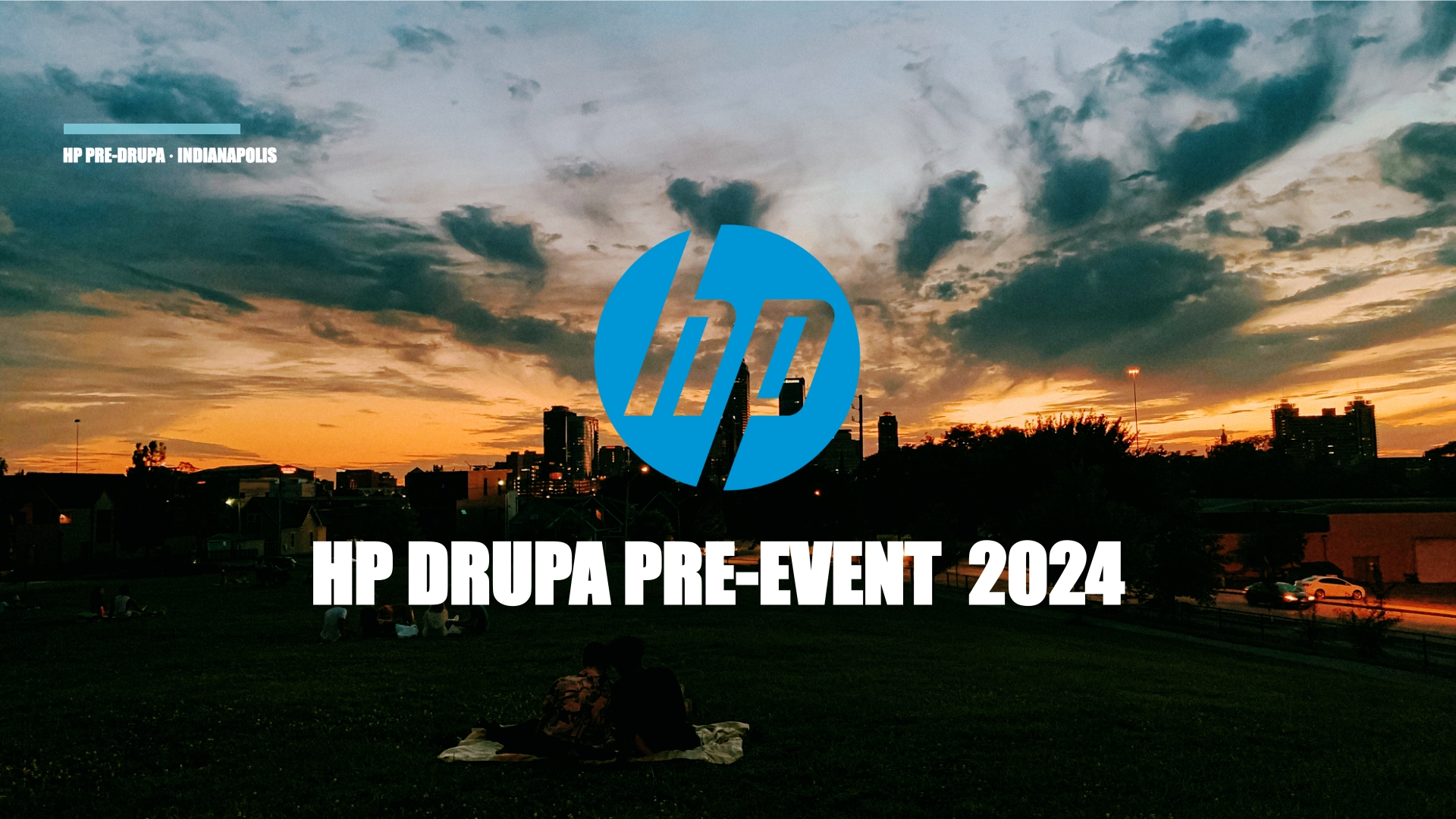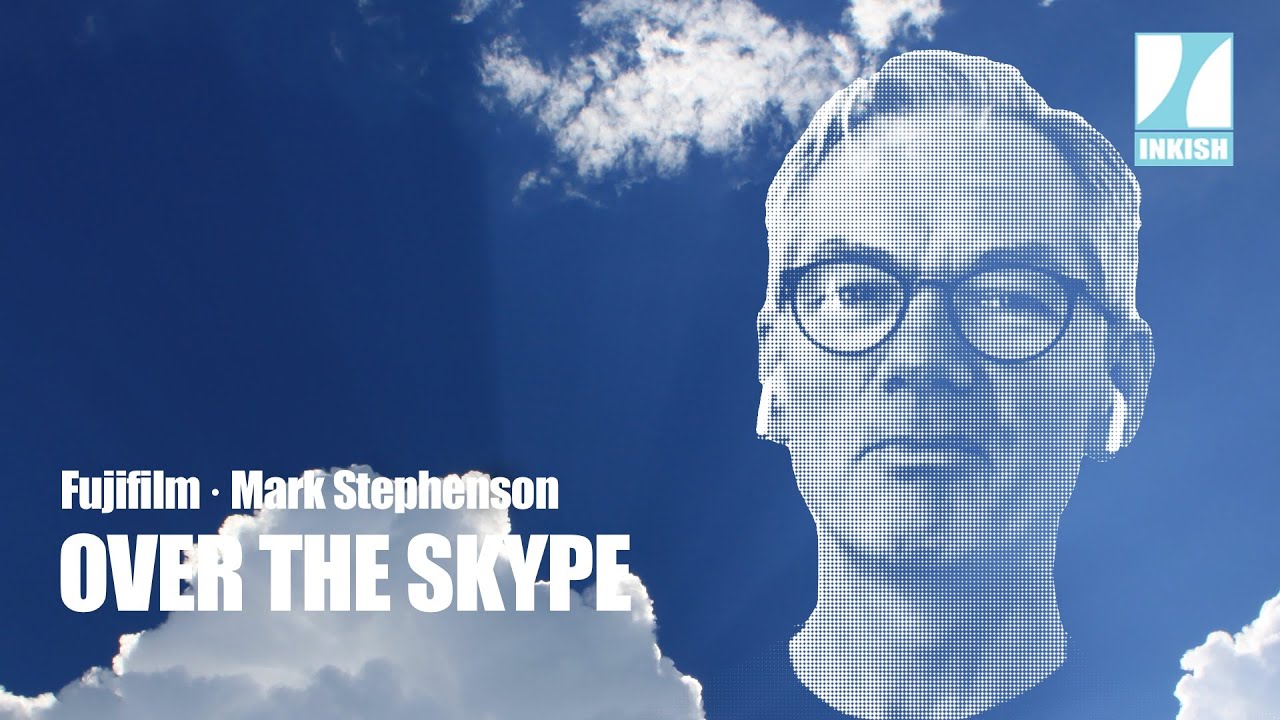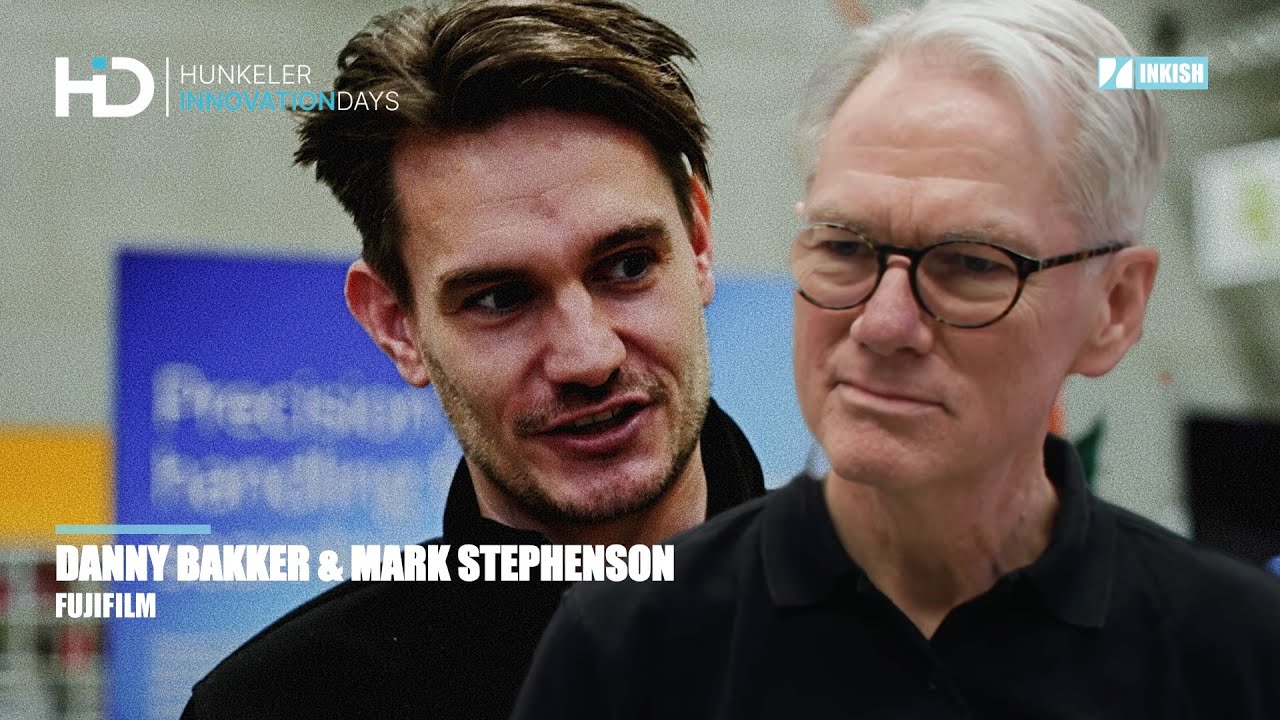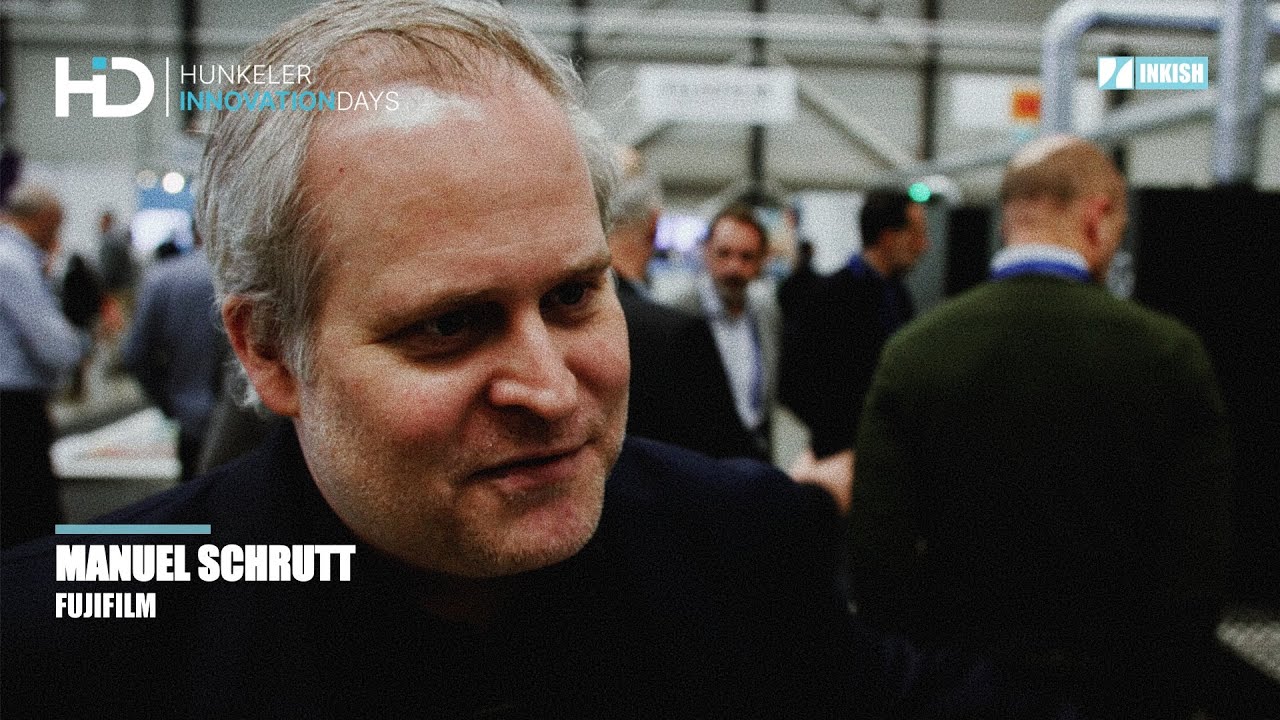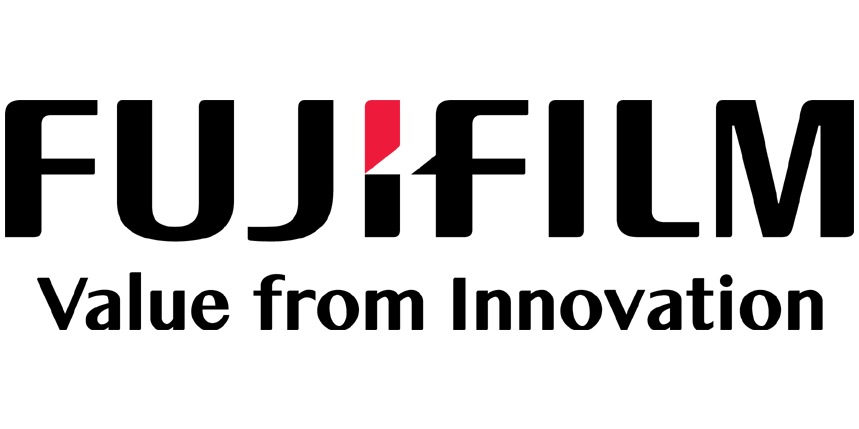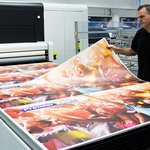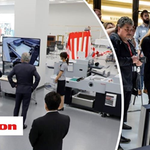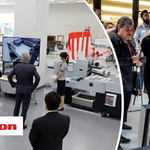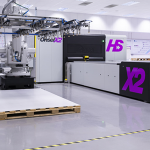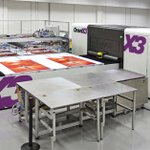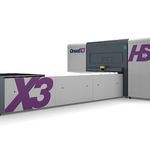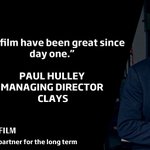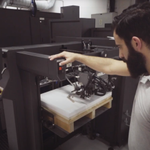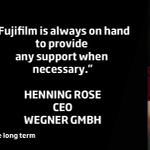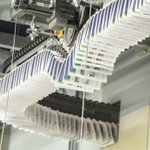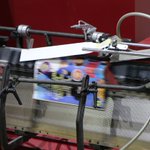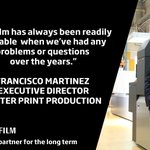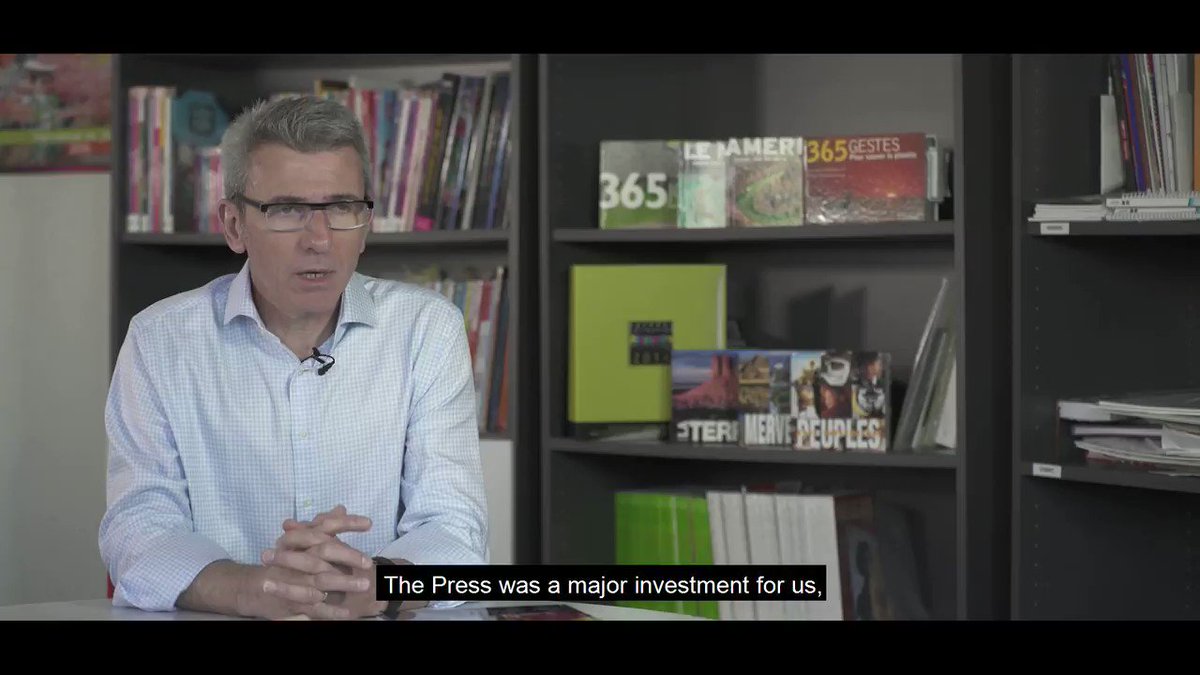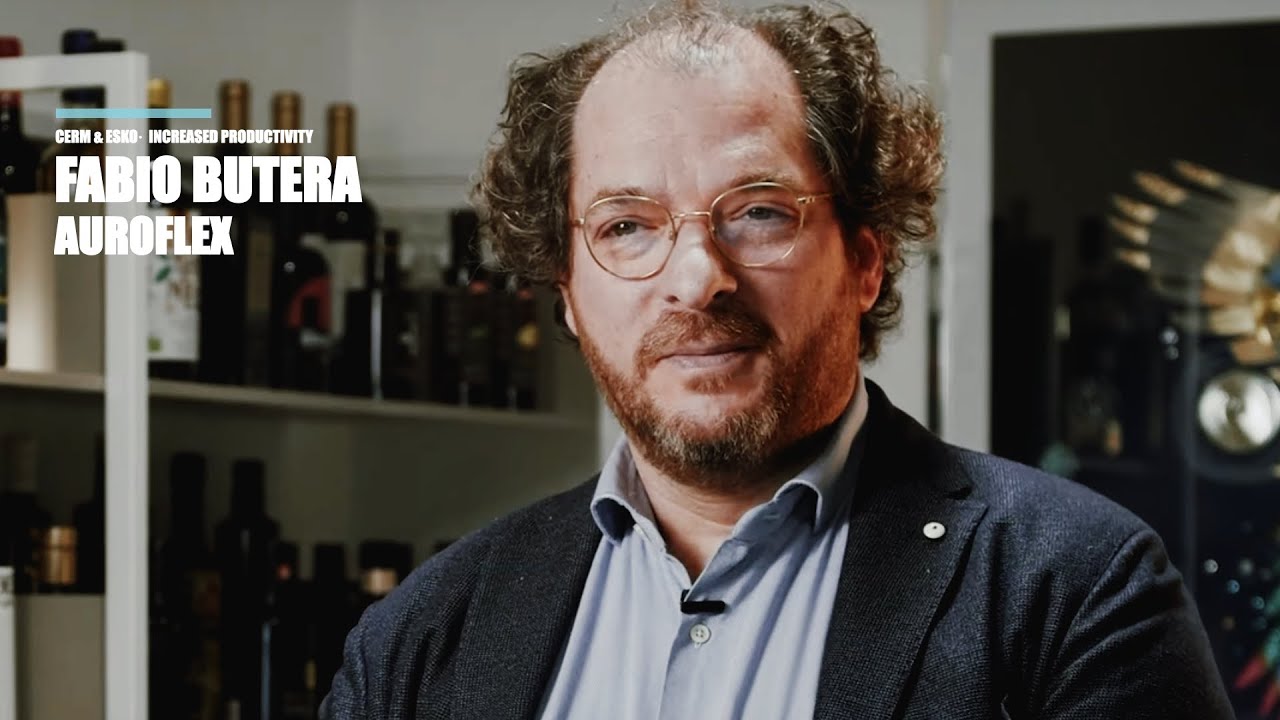Mark Stephenson · Over The Skype · Fujifilm Europe
Mark Stephenson is the Product Manager for the Jetpresses in Europe. In this conversation, we speculate over the future of drupa. One reason is obviously Fujifilm’s own presence at the show, but also because Mark Stephenson has a crush on the drupa-songs, so he has created a Facebook page with all the songs – you can find that here: https://www.facebook.com/DrupaSongs/
As with all our ‘Over the Skype’ interviews, quality is limited to bandwidth, web-cams, and ability to literally LIVE mix the conversations. However, it works, and with Over the Skype, we will bring you more than 20 exciting people, and angles on the industry as it is right now.
Enjoy!
This is Morten from INKISH.TV. Today is a wonderful day here in Denmark. We have nice temperatures and the sun is up. And we still have to be inside and we can’t go out because of this stupid corona thing. But you see, it also has advantages because during this week and next week we will talk to a lot of interesting people from the printing industry. And today, I’m so fortunate. I’m talking to Mark Stephenson from Fujifilm Europe. And Mark, very warm welcome to INKISH on this platform.
Yeah, it’s nice to talk to so many people. Recently, I’ve been talking online to people all around the world more than I normally do. So it’s great.
Great. I think it’s the same for me. Because in the beginning I was a little bit sad that I had to use the Skype thing because we like to go out and see equipment, and talk to people, and see amazing printing companies and applications. Things like that. But advantage this way is that we get the chance to talk to a lot of people in a shorter period of time.
So thank you again. And one of the things that I would like to talk to you about is that Drupa has been postponed. A lot of exhibition has been postponed. Does that influence the work of what you do at Fujifilm immediately? Or is it something that you can just delay it a little bit? Or how was that from your perspective?
Yeah, it was a huge thing when Drupa was postponed. Everything I was doing 24/7 … not quite 24/7, but seemed like thinking about 24/7. All of a sudden went on hold. We have to think what will this place be like? What will our world be like in 12 months time? Will we want to say the same thing as we were about to say in three months time? And it’s a lot different than … Of course, the biggest disappointment for me was no Drupa song.
Oh, yeah.
That’s a massive thing for me because I’m a big Drupa song fan. I do have a web page on Facebook dedicated to Drupa song.
Yeah, I’ve seen that. I’ve seen that.
[crosstalk 00:02:20].
Yeah. And I guarantee you that we will put a text overlay with the address for it because I think it’s so cheesy that everybody needs to see it.
I’d say it could cheer you up on a dark guy. But no, seriously. Yeah, the whole thing about, “Okay, what were we going to do? Shall we carry on doing it anyway virtually?” And I’m not sure many people are in the mood to start thinking about capital investments at the moment, or seeking out new suppliers, or changing suppliers.
So we took the decision, “Okay. We’ll keep our …” As we say in the UK, “We keep our powder dry.” We’ll not reveal anything that we were going to reveal. Some carried on and did so. But we feel like timing is all important here. We need to consider where our customers are, where our potential customers are. And probably, we’ll know more in two or three months time and we’ll start our plan again and see where we end up.
I actually understand your approach to keeping your powder dry, and from that perspective. But since you’re the marketing manager, aren’t you sometimes maybe a little concerned that if all your natural competitors in the market starts to blowing the whistles and ring the bells about all their new things that it could keep momentum away from Fujifilm?
Frankly, no. I don’t know if anyone’s listening. Maybe with one ear. Certainly, in the industry, you know as soon as someone says, “Oh, this is the product I was going to reveal,” all of us in the industry are all ears. We’ve got probably a little more time to listen. But for guys … the coal face, people working on the frontline of print trying to keep their businesses going or trying to hold their business until it’s ready to revive again, I just don’t think it’s the time for them.
And if there was something revealed over the past few weeks, I think that message will have to be rolled out again. We’re working far more on a one-to-one level. All our sales people are not furloughed. They’re all working. They’re keeping in touch with their customers. They’re talking to them. Asking them how they’re doing, asking them how we can help, and gathering information for us so we know what levels of business we need to be preparing for the next few months.
Okay. So if any competitors watching this film got the idea that you’re not doing anything, that’s completely wrong. You’re just doing something that is maybe less publicly … Because the one-on-one thing is great. I guess that you have a great opportunity to talk to one-on-one basis with a customer, what are their needs and where do they see the future for the own business. So you can actually adapt your communication more specifically to a specific need rather than having a mass communication perspective. Is that correctly understood?
Yes, that’s right. Sales is always a conversation.
Always.
Marketing can be broadcasting, yes. But more and more, marketing is becoming a conversation too. Like with the likes of LinkedIn, social media. We invite people to talk to us and tell us what they think and how they feel, ask them to interact with us and give us information as well.
So yeah, the world is changing. I think this particular situation with the viruses is making us all even more aware of, “What are we doing? What are we saying? Are people listening to us? And what could we say that’s that’s relevant at the moment?”
Yeah. One of the things that, and you touched upon it a second ago, is that I think that a lot of people in industry are wondering about how does the world look after this crisis. Because I think that very few people believe that it will be the same. Is that something that a Fujifilm on more a corporate level is starting to discuss or think about? Or is it more on an individual basis, so far in your opinion?
Yeah. I’m not too involved in our corporate approach. I know there’s work going on. I’ve been talking to our head of communications, and he’s got a program starting just talking about the relationship of Fujifilm with his customers. And we’re here. We’re not going away. I feel particularly comforted by the fact Fujifilm has a lot of other things going on within its business rather than print.
You may have seen in the news, the research we’re doing with coronavirus. It’s not an antidote. It’s a treatment. And also, some testing products as well to test if people have the virus or not. As well as our medical division with x-ray machines. They’ve been really busy at the moment with portable x-ray machines.
And also is, there’s a big team at Fujifilm that have been setting up radiographers to work from home. So they’ve been installing equipment in the homes of NHS workers who can then look at x-rays and scans and diagnose from home without having to go into the hospitals.
So that sort of thing makes me think I’m comforted for my own job security and those of my colleagues because our business with diversity can ride out storms in various areas. We want to show people we’re here for the long-term. We’re not just going to fold a part of the business because at the moment it’s facing difficult.
Yeah. And I think that that running a business with that diversity is, of course, with the size of Fujifilm must be insuring for the workers, and even for the customers. Because I guess that you still have operations with existing customers where you need to service the machines, and deliver the consumables, and all these kinds of things. And if you were a small company, very fragile, that would be something that could be very damaging to their business, obviously.
One of the things that I’m wondering about and that is if you look at, for example, the Drupa that has been postponed, as we just spoke about. I look very much forward to that event, of course. But one of the concerns I have is not related to the coronavirus, but more related to the fact that a lot of especially hardware vendors are developing new products and services around the four year cycle.
And some, as you say, have already started to publish, and announce, and even expect to deliver solutions just after the summer. Do you think that this postponing can lead to fewer exhibitors and fewer visitors, and then making a Drupa less important from an industry perspective? Or what is your opinion about that?
Yes, I did start to think about that. As we don’t know at the moment where are we going to be at that time and what the world will look like. Will it be the right timing? But you have to plan for these things in advance and you have to get them ready. And I know the Drupa team is very good at recruiting people to exhibit. They’re probably oversubscribed for the last Drupa. So I’m not so worried that the main players won’t be there. I think they will. What exactly will show at the moment, we may have more to show than we had planned, which would be great.
Because you have further time to develop things and prepare things. Is that what you’re saying?
Exactly. Exactly, yeah. And from my understanding of our R&D guys, they tend not to work around an exhibition schedule, but around when the technology is working and ready to show. And they would have a very conservative attitude towards that, of not promising too much and then it not being delivered in time. So we tend to work around what we have to say-
Yeah.
…at that particular time.
Okay. So let’s cross our fingers that Drupa will be the fantastic, amazing experience as we normally see. And that will be … I’m sure that the Drupa people working very hard on making that happen, of course. The future is, of course, very difficult to predict. To say maybe Fujifilm has a prediction machine for the future. I don’t know. You have so many things.
You’ve got our secret weapon. I wasn’t going to talk about it.
Okay. Sorry. Okay. And it’s not even April 1st, right? No. Mark, I was thinking that … I spoke to an industry leader last weekend. One of his comments was that he predict that the market, when it comes to the number of printing companies, will have a significant lower number after the crisis. Because he said that maybe some have overinvested before the crisis and are hit hard by the fact that demand has decreased over these just … it’s just a couple of months now. But is that something that … Do you share that concern? Or do you think that we will just come back to normal level of business at some point?
I keep changing my mind. One day I feel, “Oh, it’s doom and gloom. And we’re all,” another saying, “going to hell in a handcart.” But other times, you look and you think, “Well, we’re good at adapting.” This industry is good at adapting. It’s changed so much in the age of digitization. It’s beaten off some challenges of technologies that we’re supposed to take over the world and didn’t. And it’s continued to all that time.
And I think we’ll come back. It may take a while. There will be casualties along the way, for sure. There’ll be some people who don’t make out the other side. But we’ll come back different and we’ll come,, back with a new mindset and the survivors will build on that and they’ll be stronger for it. And okay, maybe it’s brought forward some of the hard decisions this industry will have to make. But we’ve got a way of surviving. And we’ll continue to do that.
Yeah. I spoke to our common friend, Mark Hinder, yesterday.
Oh, right.
And he was very confident that there might be a short-term effect on this, but there will also suddenly there will be a huge demand. And maybe you and him are, more or less, in the same boat because maybe the biggest change is maybe this is the golden opportunity for technology change. Maybe inkjet is finally really hitting a … I wouldn’t say mass market because you have been in that market for a long time. But mass vendors or printing companies looking into these technologies because they become better and better, nicer, nicer quality. Operational cost becomes more competitive with offset. And is that something that you … do you share his ideas about that?
It’s interesting. I was talking to the head of our UK business end of last week and he said, “Obviously our consumable business is down.” And you could say there are two sides to our consumerable business. That is ink, digital ink, for a wide format and for jet press, for commercial print. And then there’s printing plates. And he said the biggest hit was on our ink rather than on the plates.
The plates were holding up. The traditional offset printer was still printing. Not the same volumes, but better than the volumes that the inkjet users were doing. One obvious conclusion here is the amount of events that are going on. Well, they’ve stopped. There aren’t no events anymore except online events. And you wouldn’t necessarily use print to promote those.
So when this finishes, there are going to be so many events for one thing to happen at the same time. That there’s going to be a big demand there. And a lot of that work is, obviously we’ll come back as people need to start promoting again and attracting people to come back to them.
And I think there’ll be a rush trying to fit everything in at the same time. I think some events will struggle to gain attention because there’s so many other things happening. You can’t Wimbledon, the Edinburgh festival, and the Euro competition all at the same time. At least [inaudible 00:15:29] will happen. So it’s, it’s going to be managing our way through that. And, again, yeah, finding out where we are.
I totally agree with you. But I was thinking more from a printing industry perspective. Is the time now to, if you are … let’s say that you are a owner of a printing company, and let’s say that you have an old offset press, and you are considering your future. And I think that most people agree that the future is digital.
And I think that most people agree today that quality isn’t an issue anymore. It’s maybe a change of mindset more than anything else. And I was just wondering, do you think that the co-owner, if anything positive comes out of it, is it that the printing companies might take fast decisions to move to digital? Like the inkjet offerings. Rather than just continue with offset. Or do you get my point?
I get your point. And I think it’s a guess.
Oh yeah, of course. Of course.
So it’s a total guess for me. One of the things that drives what happens with our commercial inkjet press, the jet press, is what the demands are basically. The more short run print there is, the more suitable it is. And obviously, one answer is declining, and have been doing for a number of years, and will continue to do so. Whether coronavirus brings a sharper decline in the run lengths, but an increase in the number of jobs, that would be the thing that tips the balance. It’s not a quality issue.
No.
It’s an economic issue. And that’s why most people who’ve bought jet press bought it because there is a solid commercial reason to do so. And very often with that, new opportunities, new markets, new things to explore. But it’s got to be based on that commercial decision. And that could … yes, it could accelerate that [crosstalk 00:17:32].
Yeah. Of course, I agree with you that it’s often driven by the print rights. But I think everybody’s also talking about mass customization. And I think at every interview I’ve done in the past three months has been also in the books business. Being like get down to the copies of one.
And I was just wondering the printing companies who are looking to invest right now, maybe they see a decreasing demand or they see an opportunity to create products that you can’t do on traditional presses. But that was the reason why I think that it might be a situation where people could start looking into new technologies rather than continuing with what they have.
Yeah, yeah. For sure. There’s an argument to say that if you wanted greetings cards at the moment, rather than go to the shop, you could go online and order a personalized greeting card to be delivered. So that could lead to something healthy for the industry. But yeah, there’s a lot of opinion around this. And I don’t have a conclusion for you. Sorry, Morten.
I don’t have any conclusions either. But I think the interesting thing about this format is that we have the time to speculate about things. And I think that when you have people that have a touch with the industry and we have a lot of different opinions that might help the printers to initiate whatever considerations. Because whatever happens, we have to get back and do some business afterwards. And it’s more question about in what directions we should work. Right?
Yeah. I think on that point, it will lead to a more open-minded attitude about where we go next as print- As people in the printing industry, it will lead to more consideration rather than more of the same. There will be more consideration about doing things different. So from that point of view, yes. That’s definitely some light in a dark situation. Yeah.
You are obviously out of the UK, but you are responsible for the jet presses in Europe. Do you see any huge differences in demand in the market in Europe? Or is the demand for jet presses depresses evenly in most European countries?
It comes in waves. An area will suddenly spring to life, and we’ll sell two or three or four jet presses, and then it’ll go quiet for two years. And then another wave will come. And it’s interesting to try and predict or guess why this is. And sometimes it’s just confidence. People feel, “Well, if someone’s investing, I need to invest as well.” So we recently, and it’s quite frustrating, we have three or four jet presses halfway through installation. We’re on holiday.
And you can’t finish them right now?
We can’t finish them. There were rules in the country that allow us not to travel there. Or the owners of the businesses said, “Not now. We just need to wait.”
Okay. That must be frustrating.
Yeah, I think we’ve got another three in a warehouse. And we’re ready to ship, but we haven’t started yet because, again, there’s situation there. So at the moment, there seems to be a real revival in Spain. So we’ve got quite a lot going on in Spain at the moment. A little bit in Germany and Italy as well. So it sits that we had a revival in Spain maybe three years ago, Spain and Italy, where we put multiple machines at the same time. Then it went quiet and that area, the UK woke up, and now Spain and Italy are coming back around again. So it’s interesting.
And I’m so sorry that you don’t have any customers nearby me because I want to go and see the ones. Every time I see the 750 or the 720 do their work, I’m just always amazed about the quality that you deliver. So can you please sell somebody in my backyard? Because I want to go and see it.
There is ongoing negotiations in Nordic, Scandinavian countries. We’re closer than we were. We didn’t really have a distributor and there were other political reasons with other companies we had agreements with. I’ll leave it there.
Yeah, yeah. That’s totally fine. Mark, it has been a pleasure to talk to you. So I appreciate your time and I thank you very much for your input. Thank you very much and have a great day ahead of you.
Yeah. You too, Morten. Nice to talk. Thank you.
Okay. Bye.


















Mon April 1st
Increased Productivity using CERM and ESKO ·...
Increased productivity is extremely important - and yes, CERM and ESKO play an enormous role with the Sicialian label producer Auroflex. Still, the business is developed around a quality and passion for supporting the Sicilian wine, food, and luxury products industry. But Auroflex does many things that are a bit out of the standard, for example, an annual design competition, where designers are invited to challenge Auroflex - and all the designs are produced to show what's possible - and as Fabio Butera tells INKISH, this develops a close relationship between Auroflex and the designers, that eventually will make some of the most complex and interesting design. Auroflex produces labels in both flexo, digital, and offset. The most important reason for investment in print technology is from Nilpeter - an offset/flexo hybrid machine - by all means, an amazing company, and see how CERM and ESKO are used in planning, pricing, color management, and, of course, inspection - in tightly integrated solutions - merging beauty with efficiency - love it.




